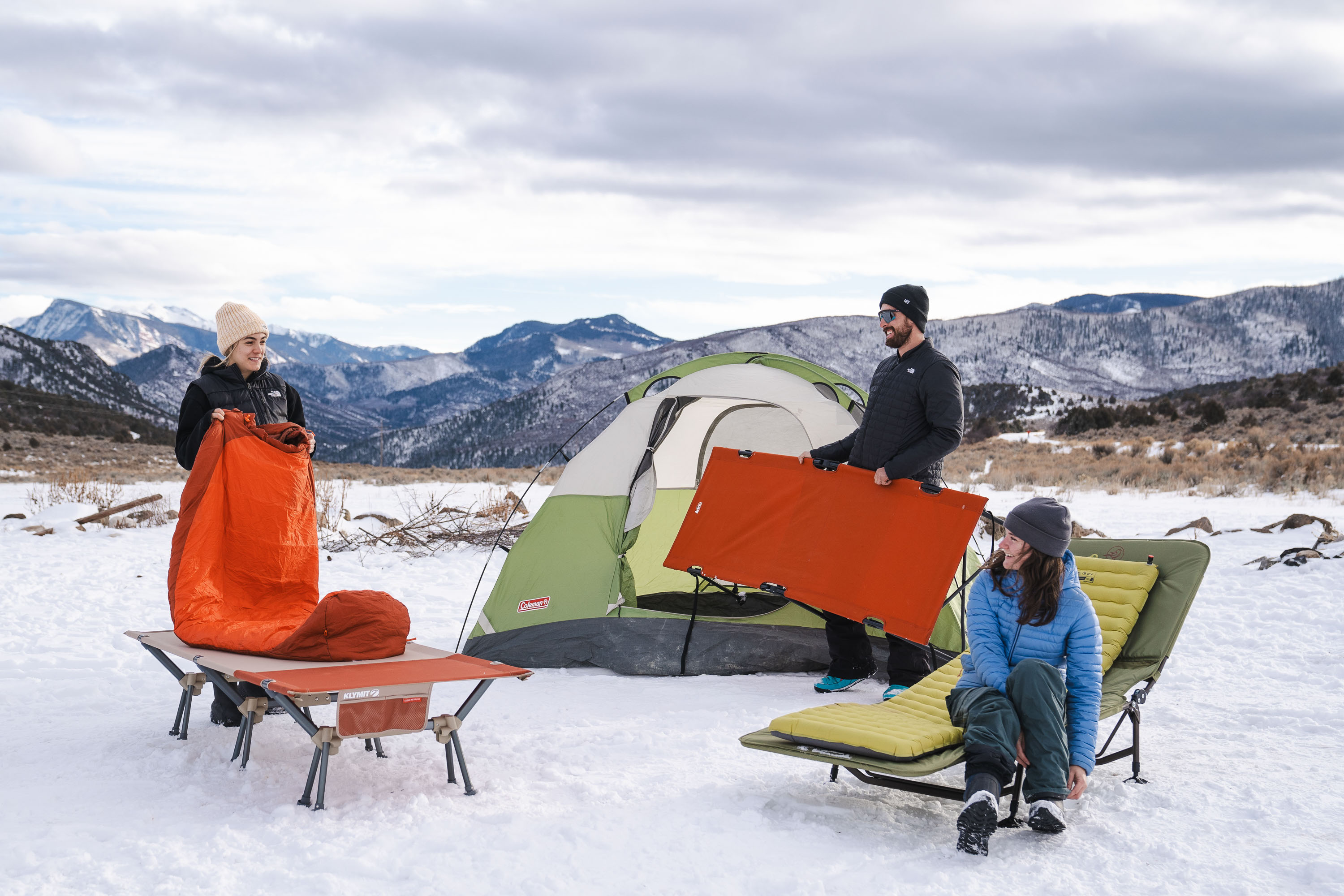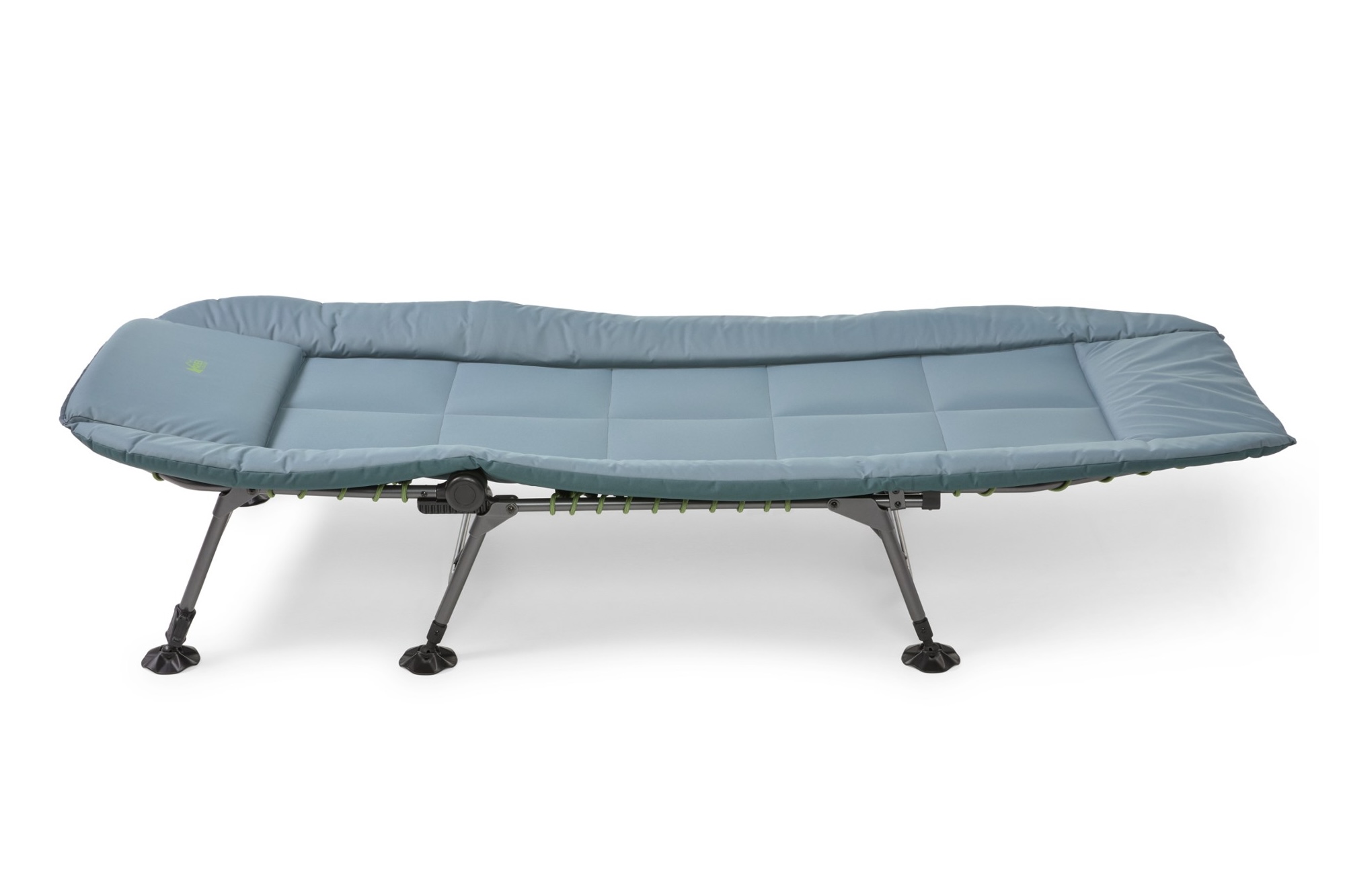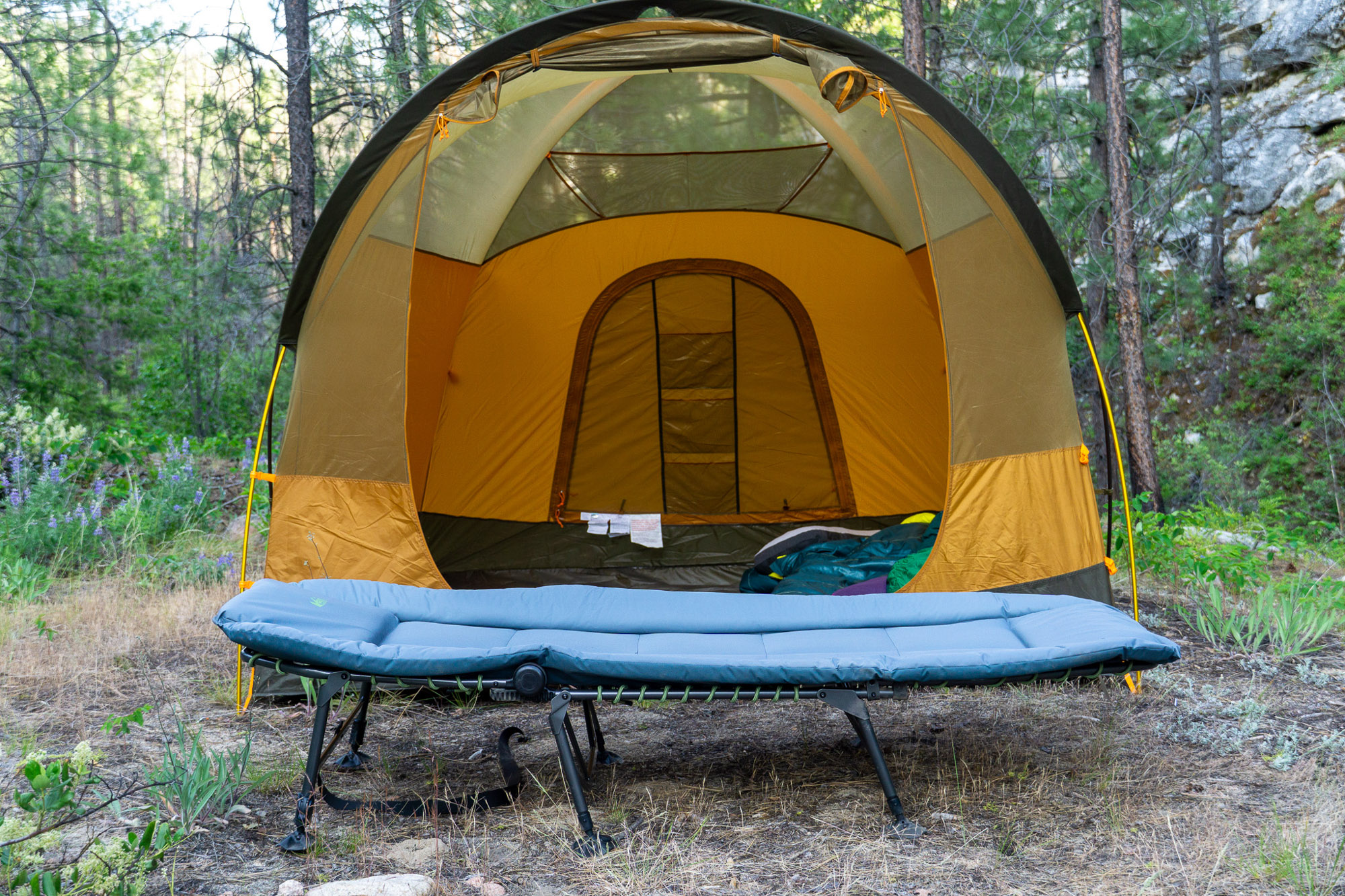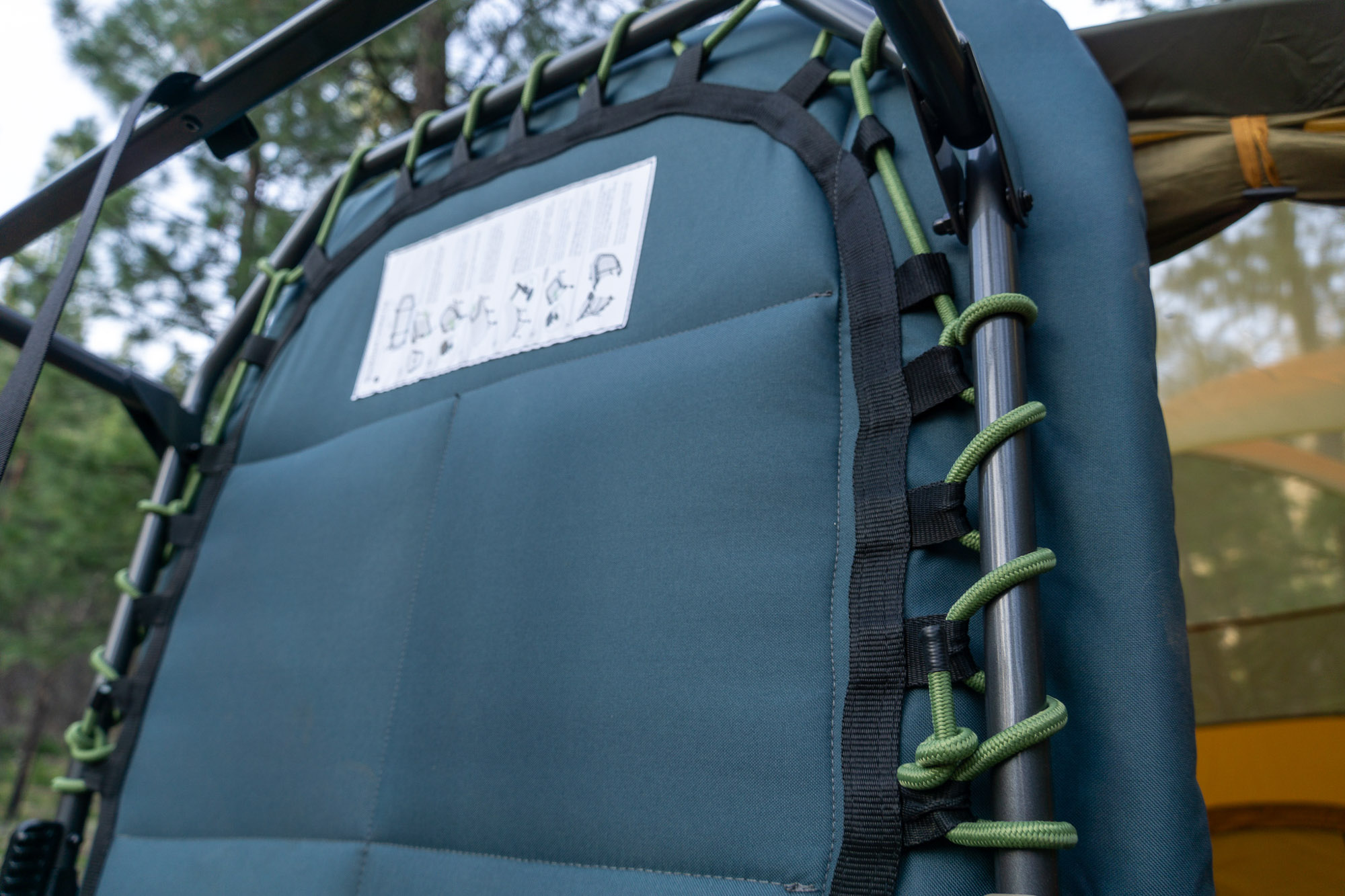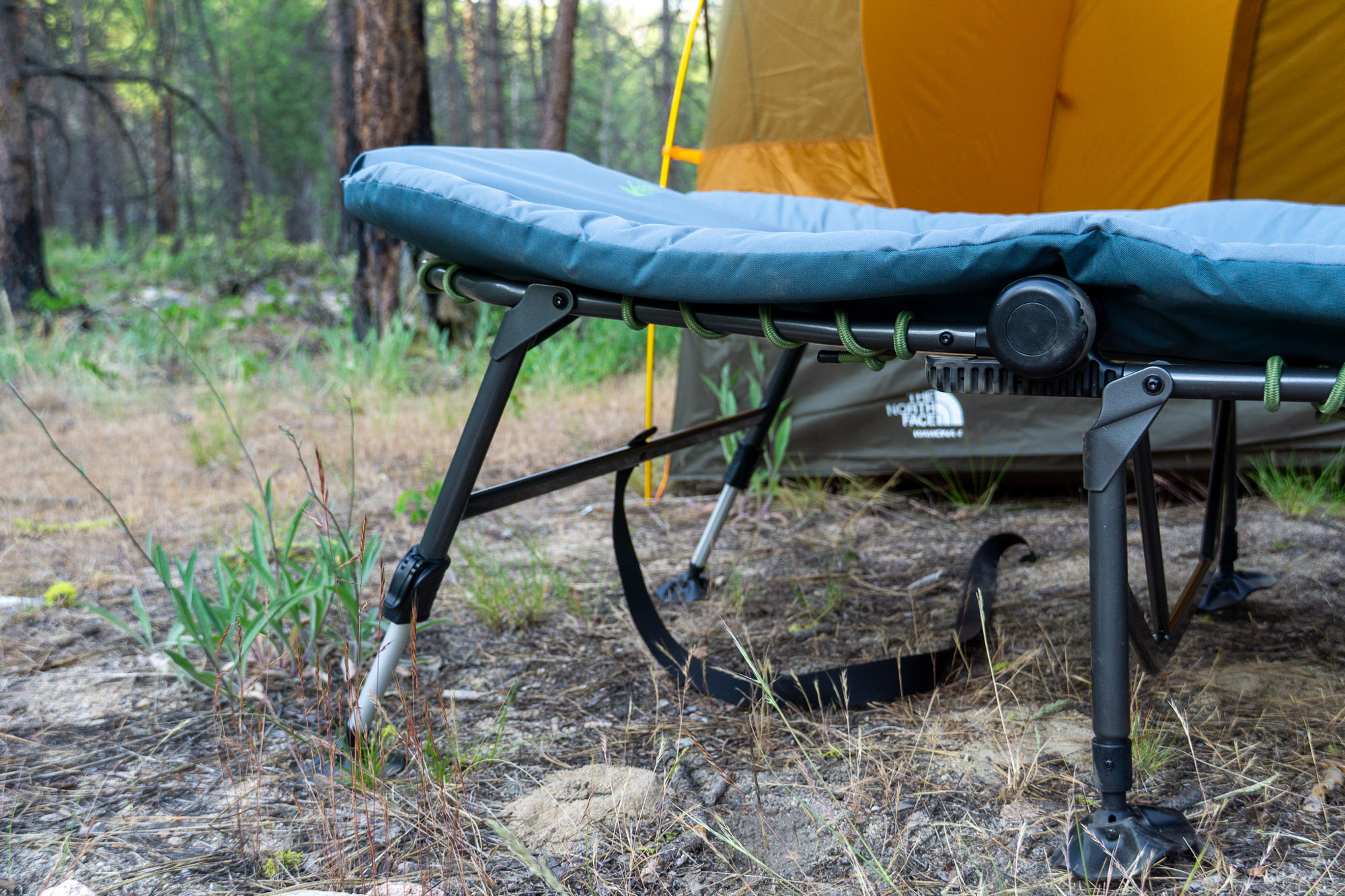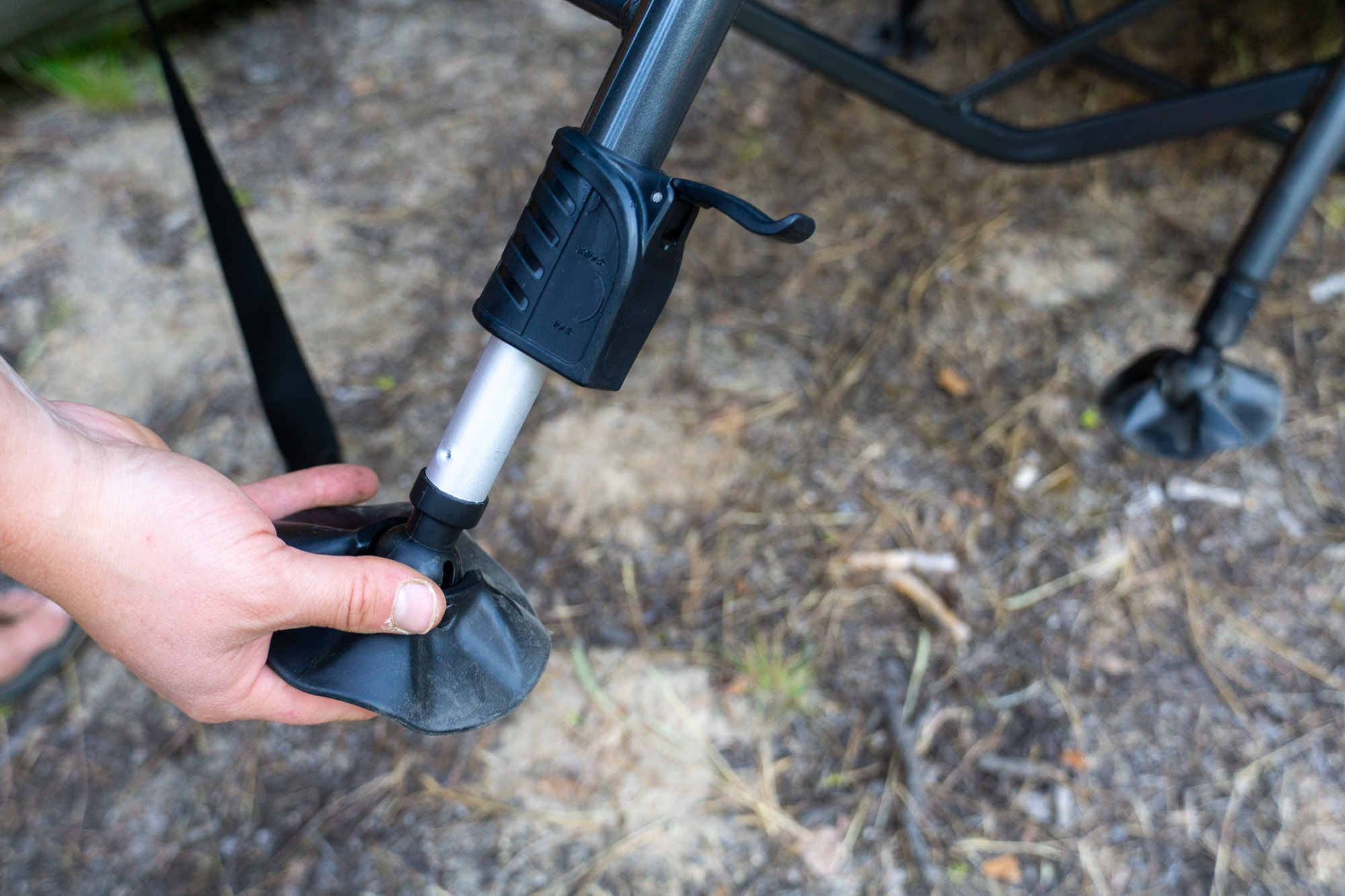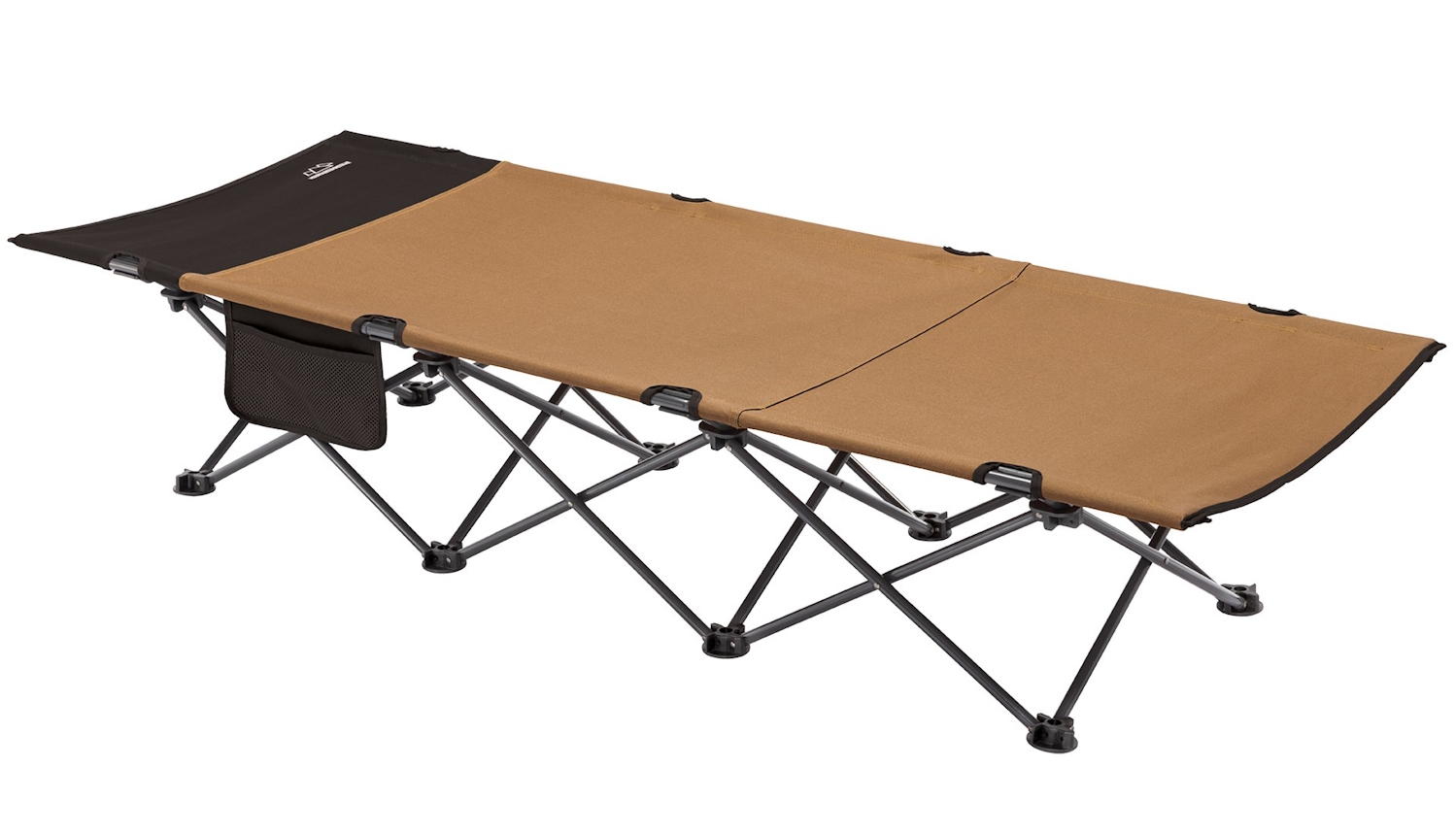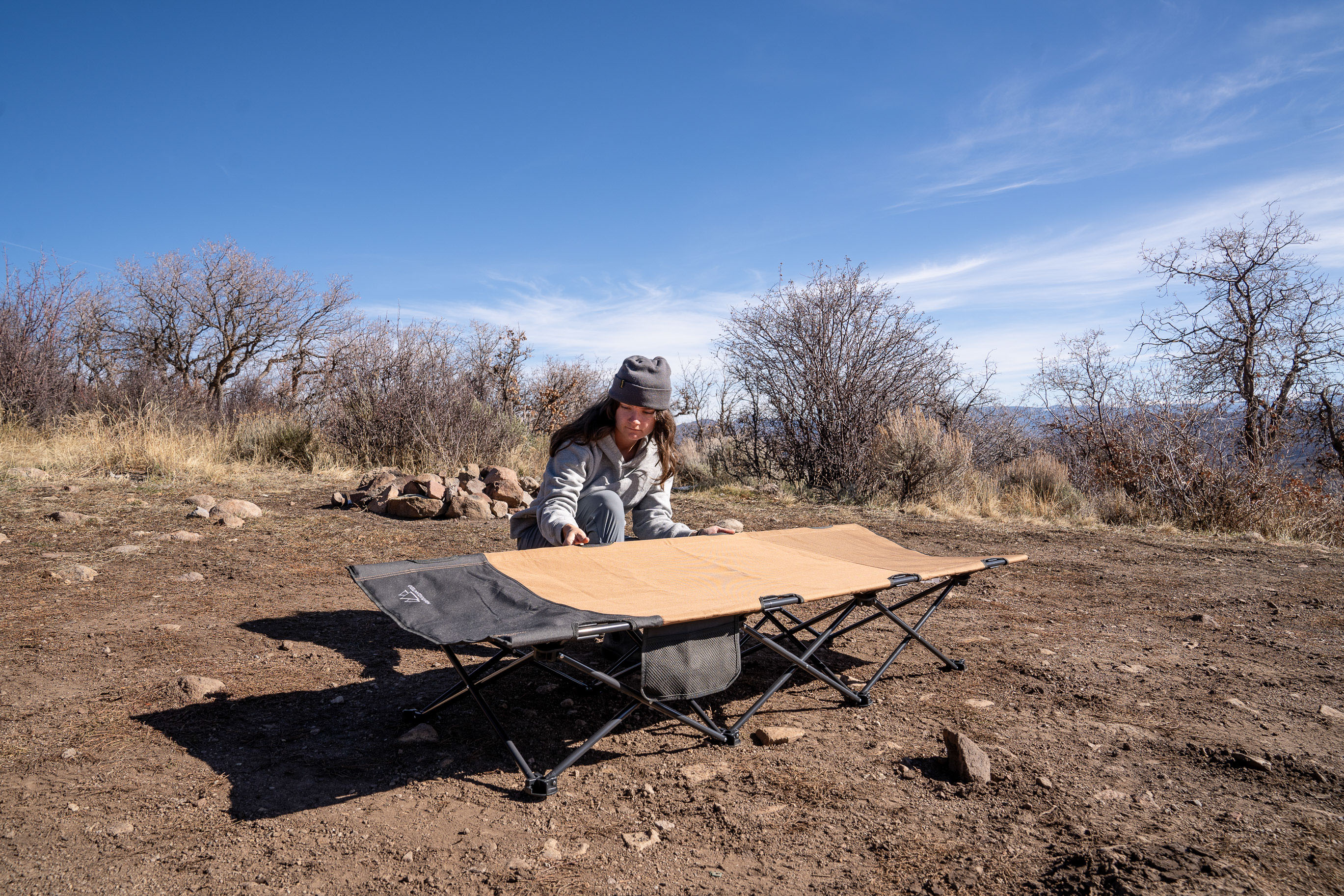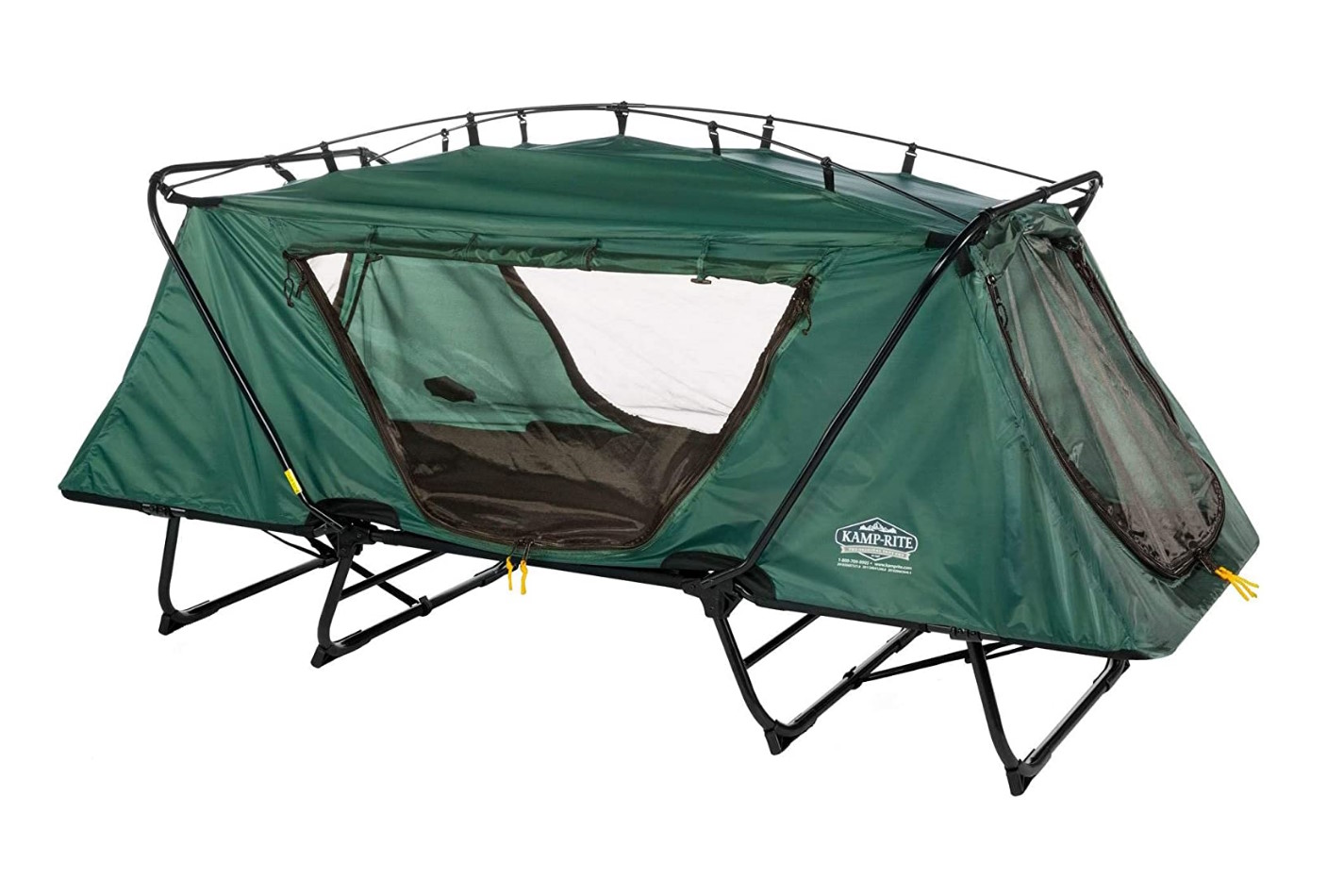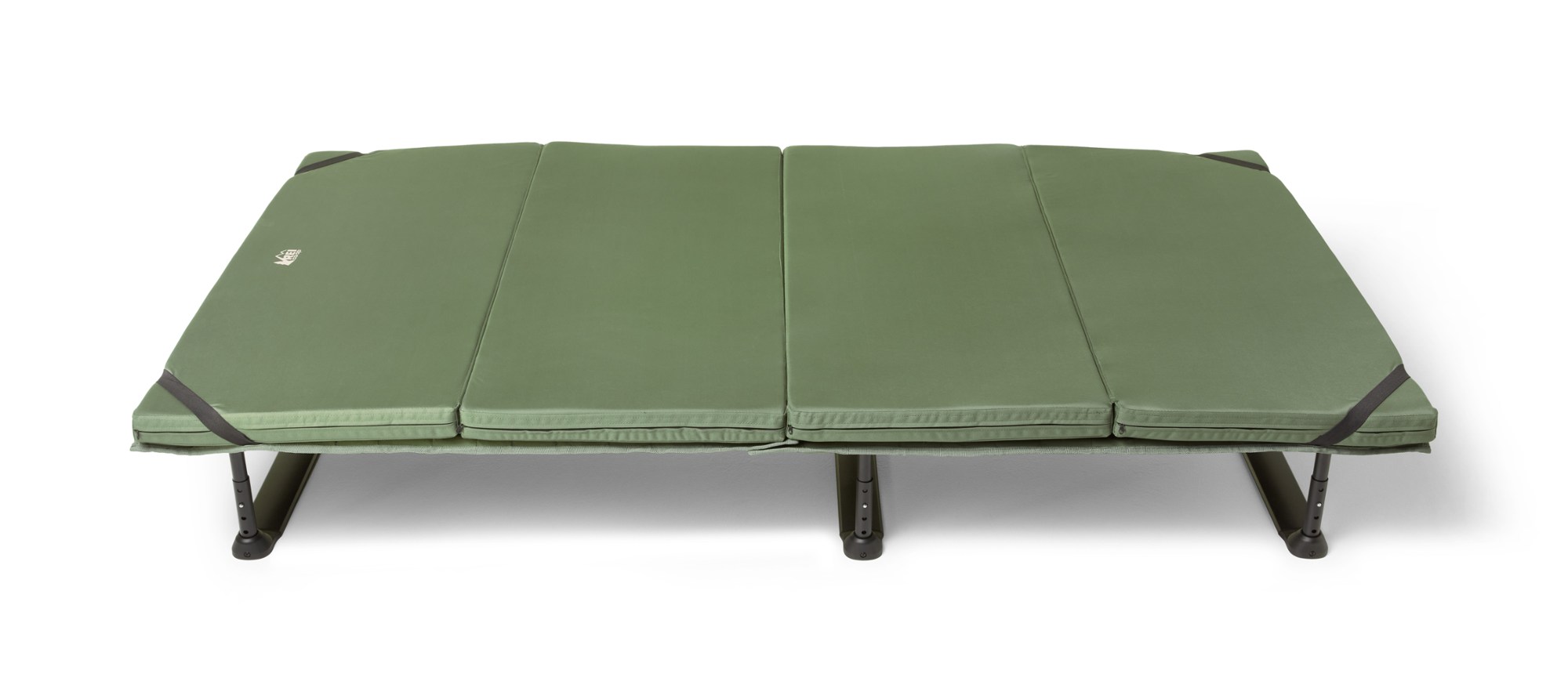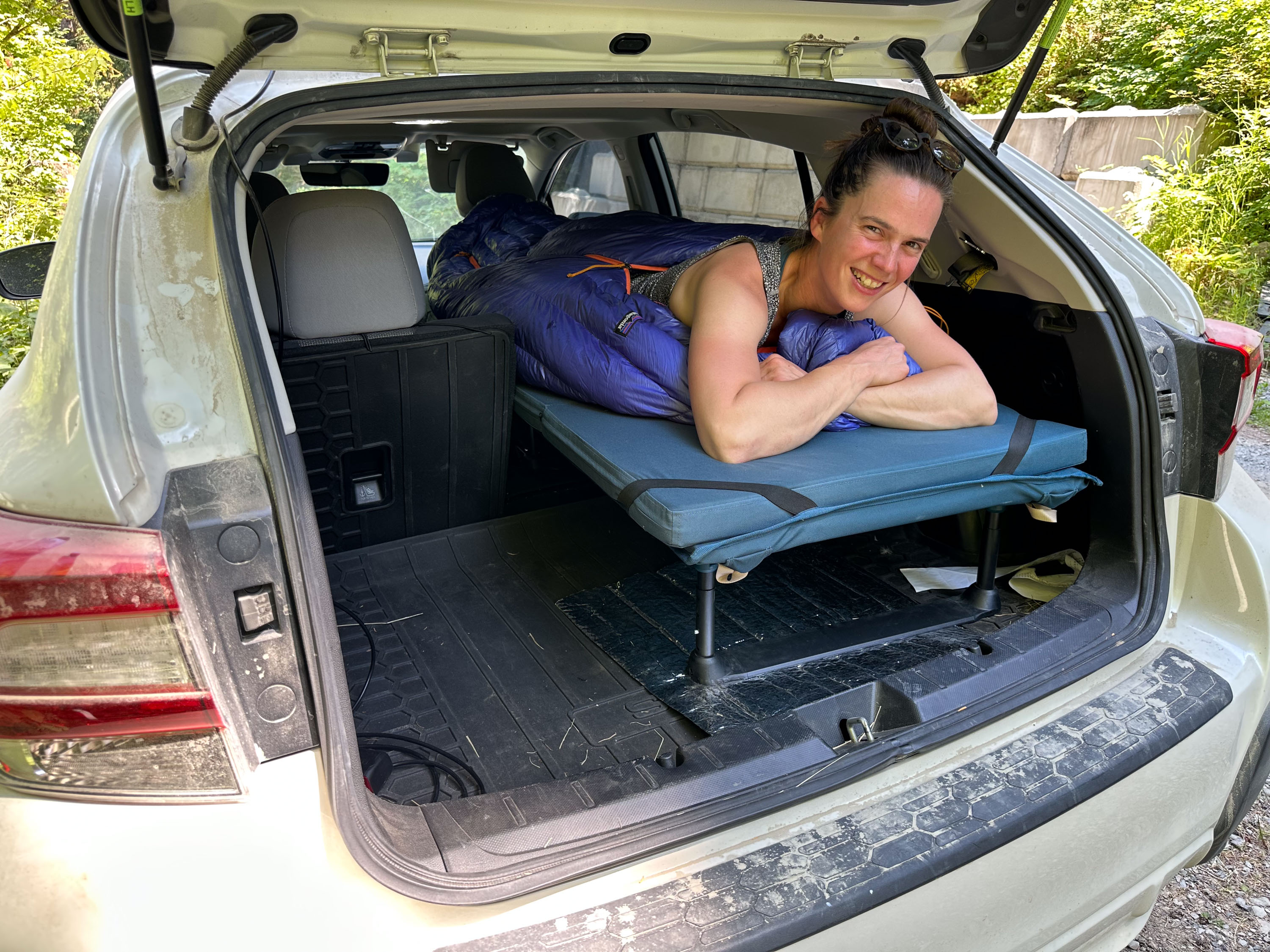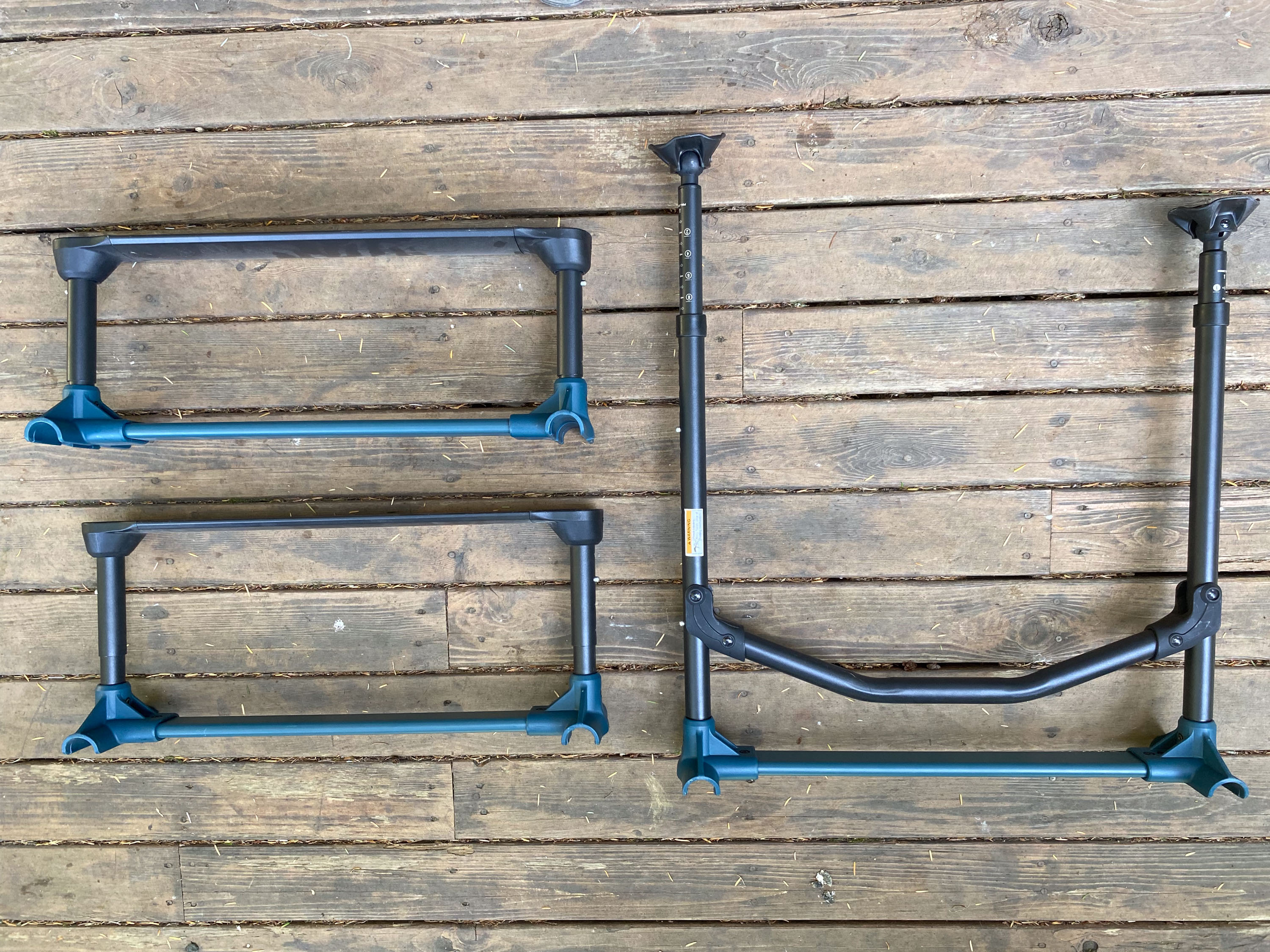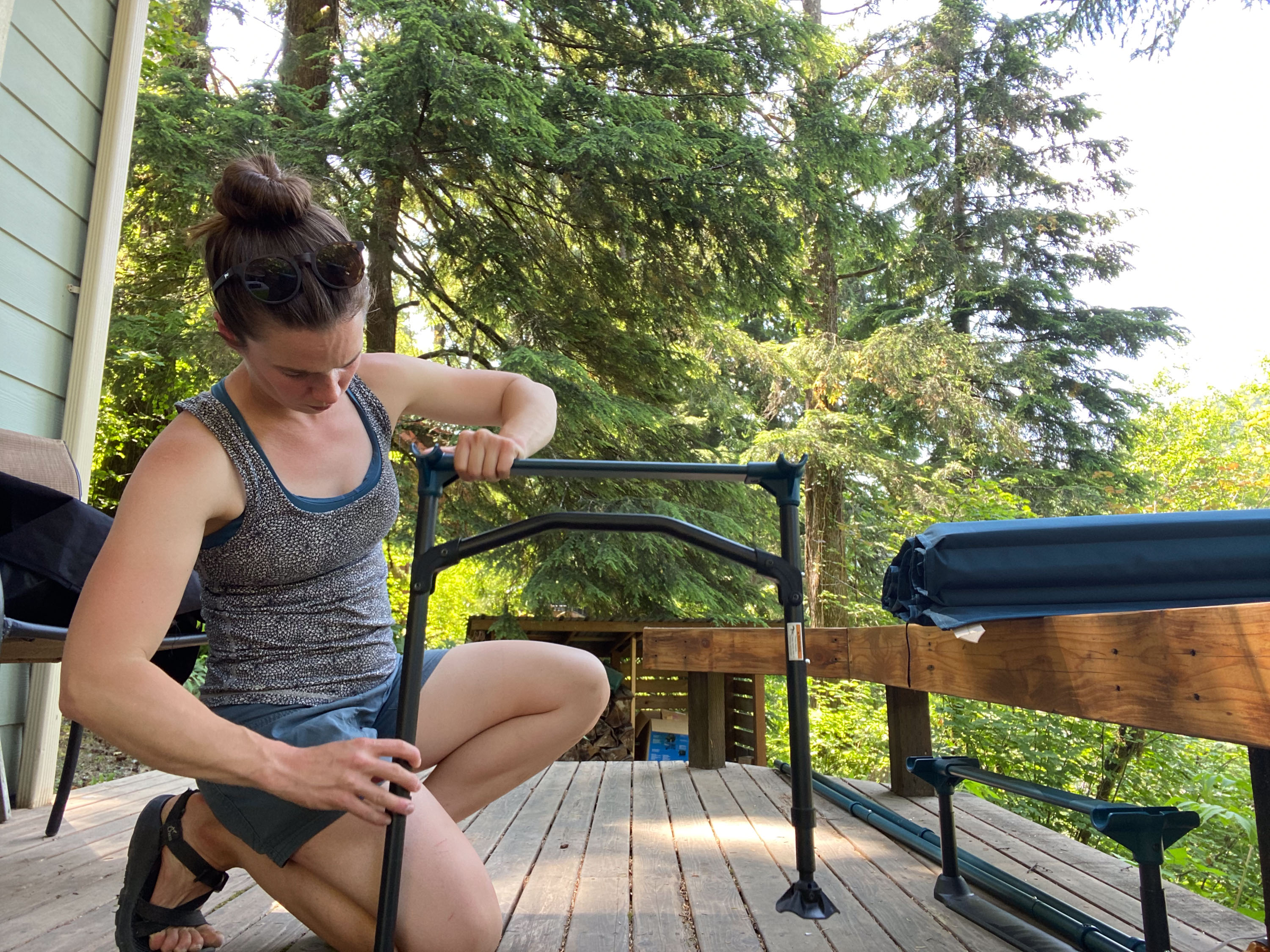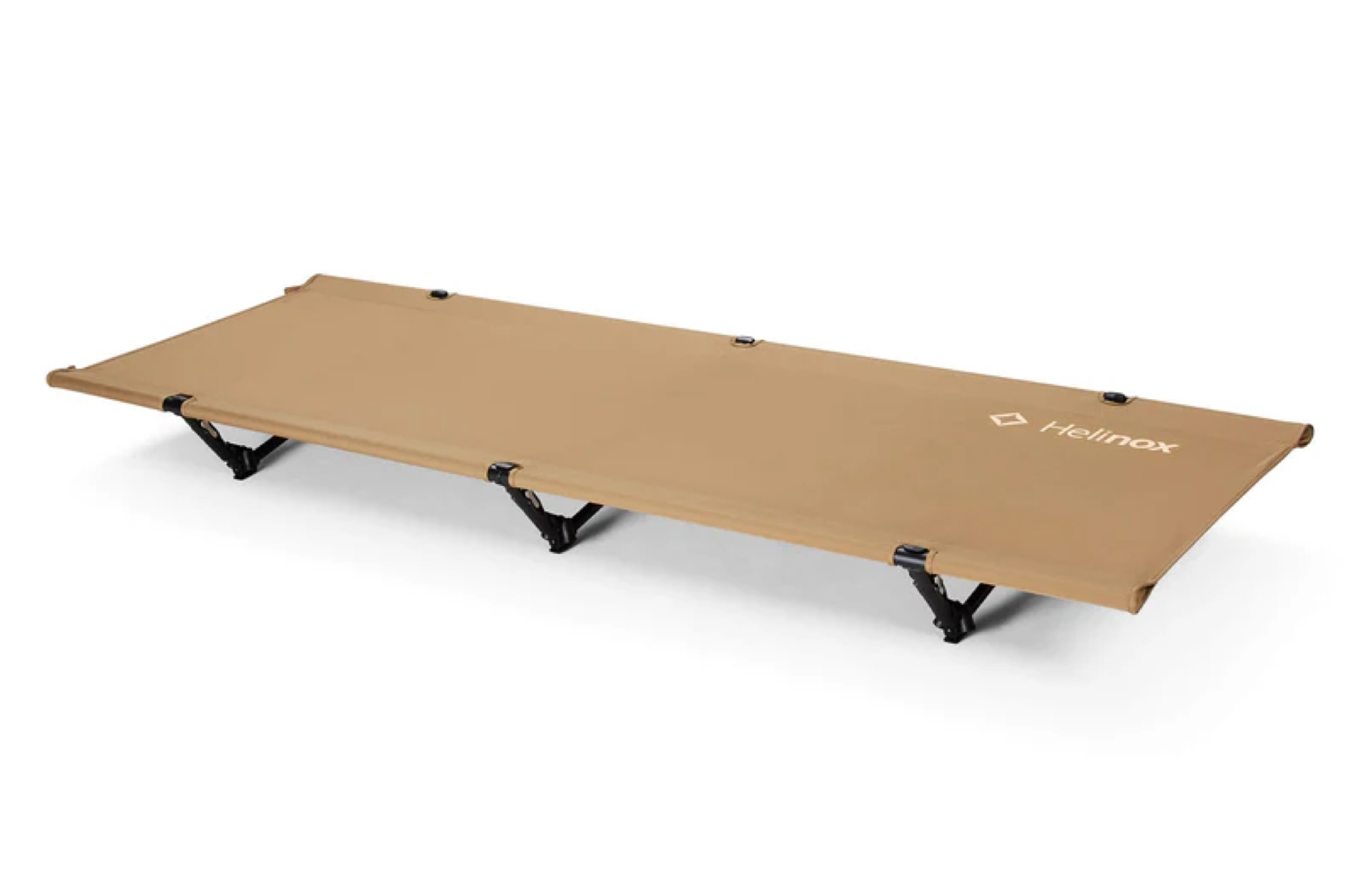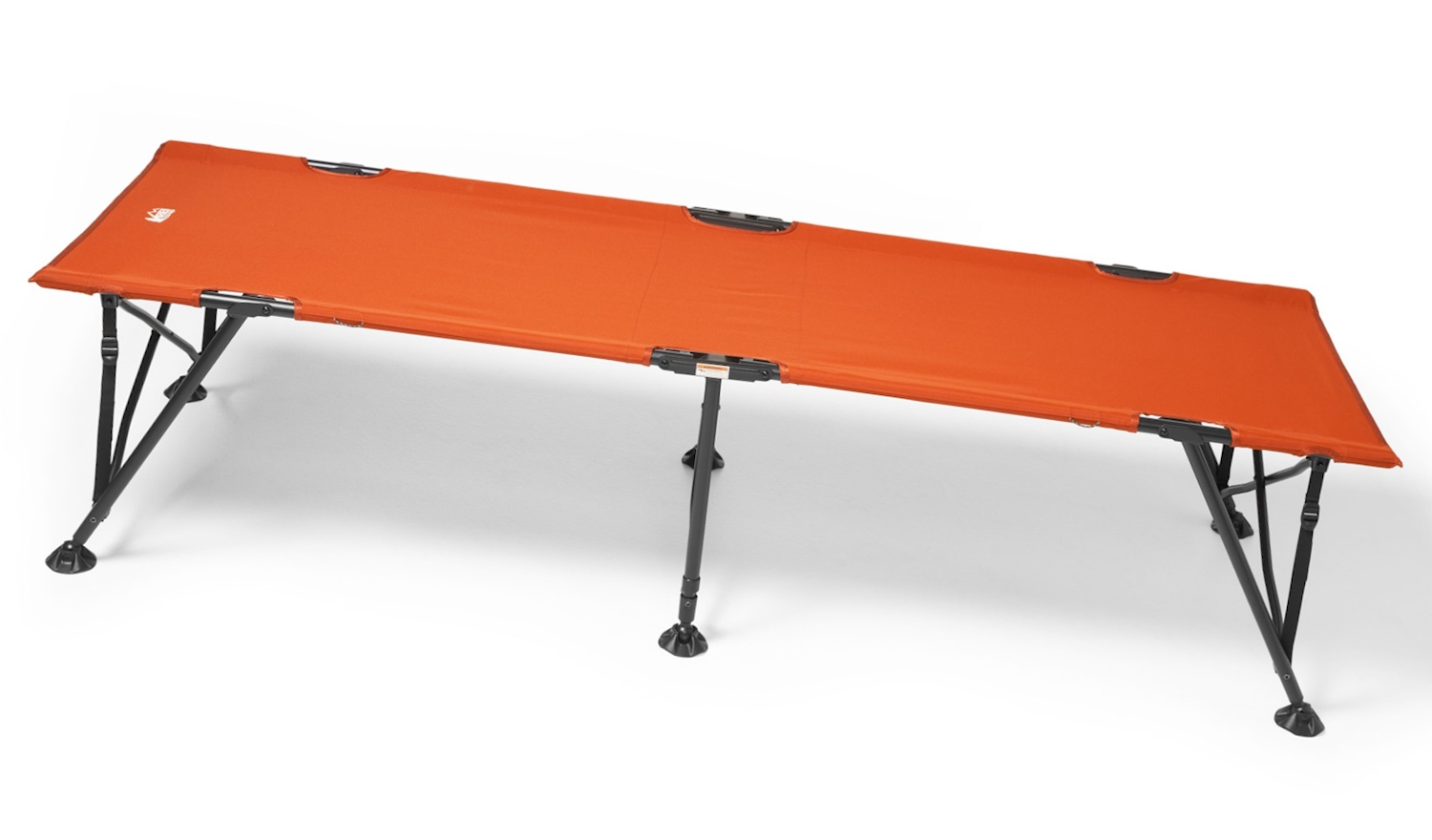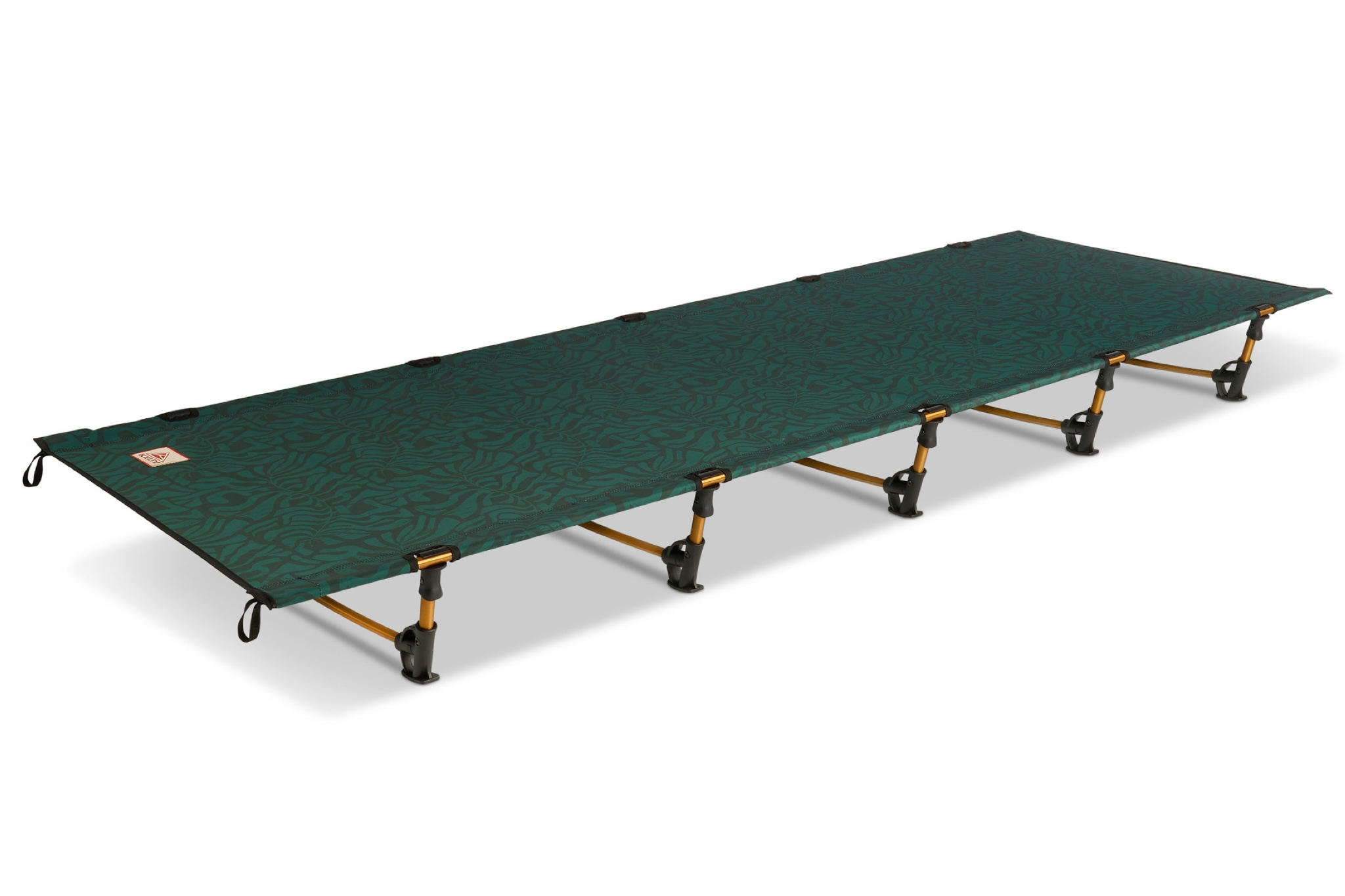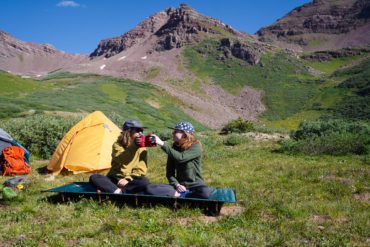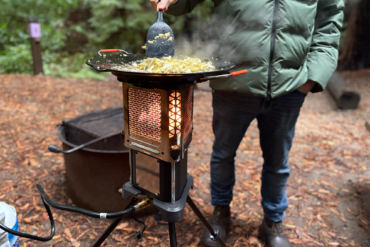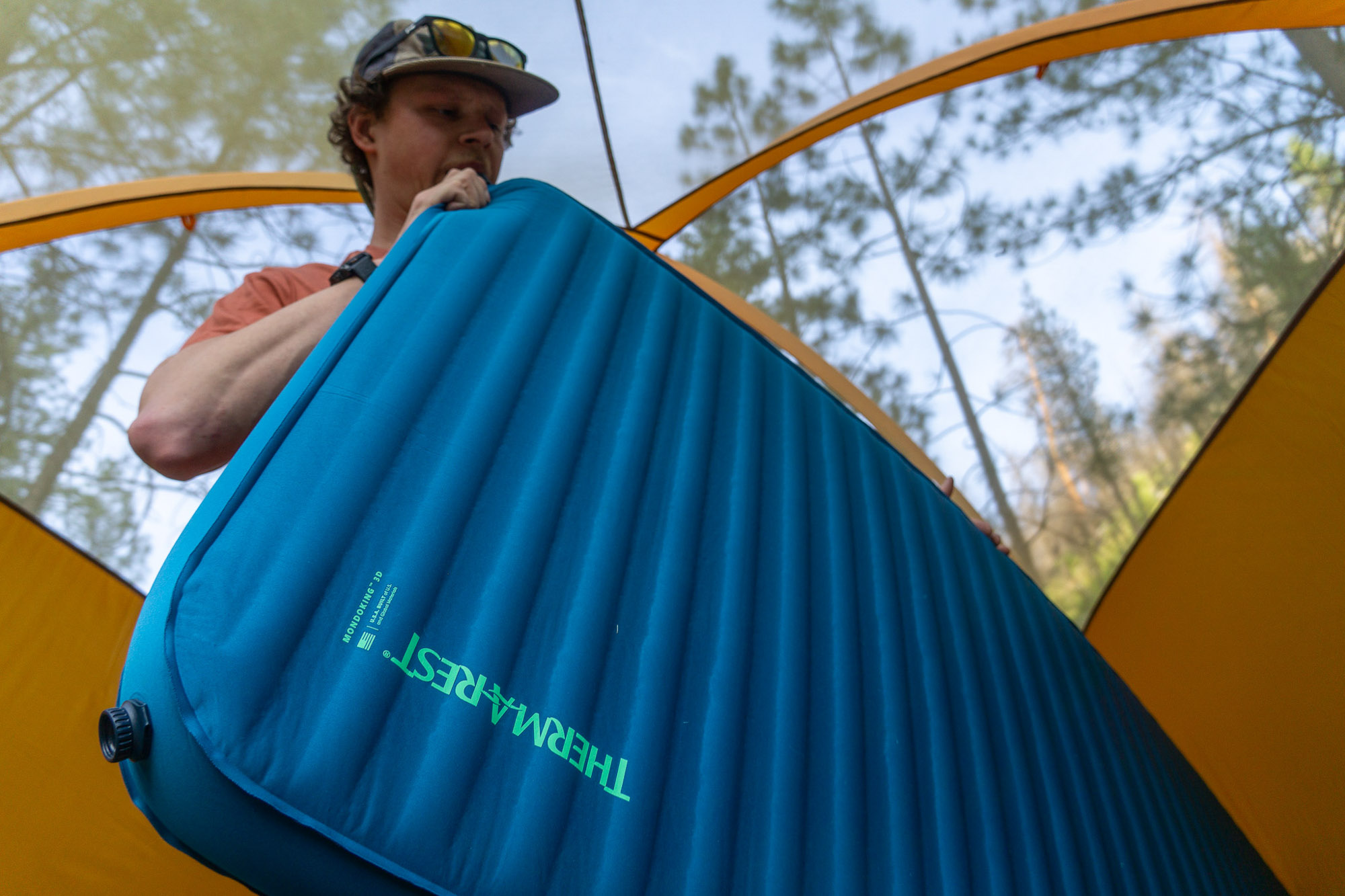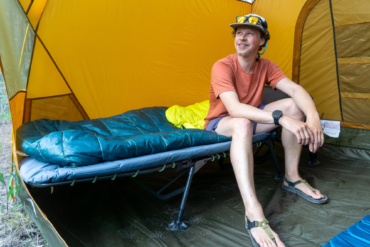Our expert team has spent countless nights trying out the best camping cots, on the hunt for the perfect backcountry bed for any night outdoors. From summer nights stargazing to frigid alpine evenings at elk camp, we’ve put each of these 15 cots through an extensive testing process in which we scored them on comfort, ease of setup, durability, and packability.
When it comes to deciding on a camping cot, there’s certainly more than meets the eye, and our expert campers have tested more than 30 cots in our search for the best. Whether you’re after a deluxe padded option like our top pick, the REI Co-op Wonderland Comfort Cot, or need something a bit more spend-wise, like the Mountain Summit Gear Horizon, we’ve found the best options for everyone.
Be sure to read up on each cot’s size, packability, comfort level, and purpose before making your final decision. A good night’s rest is out there, you just need the right bed to do it in.
Editor’s Note: We updated our Camping Cot guide on August 26, 2025, to add the Kamp-Rite Oversize Tent Cot, an all-in-one option that adds a suspended canopy to your cot along with a waterproof rainfly for a fully enclosed camping option. We also added rating details to each cot, further illuminating our testing process.
The Best Camping Cots of 2026
REI Co-op Wonderland Comfort Cot
-
Comfort
9.0
-
Ease of Set Up
8.0
-
Portability
6.0
-
Durability
9.0
- Weight: 20 lbs.
- Weight limit: 300 lbs.
- Unfolded dimensions: 82" x 31.5" x 14" (L x W x H)
- Packed dimensions: 33" x 32" x 8.5"
- Best use: Car camping or as an extra bed for guests
Pros
- Very comfortable integrated sleeping pad
- Spacious sleeping area
- New carry strap included
- Adjustable firmness
- Easy to assemble (as easy as it gets, really)
Cons
- Not as comfortable for stomach sleepers
- Large packing size
- Heavy
Mountain Summit Gear Horizon Cot
-
Comfort
6.0
-
Ease of Set Up
7.0
-
Portability
6.0
-
Durability
6.0
- Total Weight: 17 lbs.
- Weight Limit: 300 lbs.
- Unfolded Dimensions: 75 in. x 27.5 in. x 14.5 in.
- Packed Dimensions: 6 in. x 10 in. x 5 in.
- Best Use: Car camping and walk-in sites
Pros
- Includes carrying case
- Easy to maneuver around camp
- Side pocket for headlamp and phone storage
- Durable
Cons
- Slightly narrow sleeping surface
- Setup initially challenging due to stiffness
- Not much storage space due to x-shape crossbars
Klymit Cedar Mesa Cot
-
Comfort
9.0
-
Ease of Set Up
8.0
-
Portability
7.0
-
Durability
8.0
- Weight: 16 lbs. for L/18 lbs. for XL
- Weight Limit: 400 lbs.
- Unfolded Dimensions: 80 in. x 31 in. x 16 in. for L; 85.5 in. x 37 in. x 16 in. for XL (L x W x H)
- Packed Dimensions: 19 x 13 x 7.5 in.
- Best Use: Car camping for taller users, hunting camps
Pros
- Packing case and size is convenient
- Comfortable
- Simple assembly
- Capacity and length ideal for plus-size users
Cons
- Long size may not fit in smaller tents or cars
- Tough to fully insert sidebars into cot corners
Helinox Lite Cot
-
Comfort
6.0
-
Ease of Set Up
7.0
-
Portability
9.0
-
Durability
7.0
- Weight: 2 lbs., 12 oz.
- Weight Limit: 265 lbs.
- Unfolded Dimensions: 72.5 in. x 23.5 in. x 5 in. (L x W x H)
- Packed Dimensions: 20.5 in. x 5 in. x 5 in.
- Best Use: Backpacking and hut trips
Pros
- Lighter than many camping mattresses
- Packable compressed size
- Comfortable sleeping area
- Low sleeping height can be a benefit for sleeping in backpacking tents
Cons
- On the pricier side
- Lots of pieces (6 poles and cot)
- Muscles necessary for setup/breakdown
Kamp-Rite Oversize Tent Cot
-
Comfort
8.0
-
Ease of Set Up
6.0
-
Portability
5.0
-
Durability
7.0
- Weight: 32 lbs.
- Weight Limit: 350 lbs.
- Unfolded Dimensions: 90″ L x 32″ W x 36″ H
- Packed Dimensions: 36″ L x 34″ W x 7″ H
- Best Use: Sleeping under the stars without a tent
Pros
- Spacious
- Breathes well
- Circulates air well
- Keeps you elevated off the ground
- Easy setup
Cons
- Bulky
- Heavy
REI Co-op Trailgate Vehicle Sleeping Platform
-
Comfort
8.0
-
Ease of Set Up
6.0
-
Portability
6.0
-
Durability
8.0
- Weight: 31 lbs. (25"), 45 lbs. (40")
- Weight Limit: 250 lbs. (25"), 400 lbs. (40")
- Unfolded Dimensions: 72" x 25" x 10.7-30.5" (25"), 72" x 40" x 10.7-30.5" (40")
- Packed Dimensions: 31.5" x 19" x 13" (25"), 40" x 18.5" x 14" (40")
- Best Use: Converting your daily driver into a comfortable nest for the night
Pros
- Simple assembly for on-the-fly setup
- Good adjustability to accommodate different seat and foot-well heights
- Foam cushion is comfy and easy to clean
- Available in both 25" and 40" widths
Cons
- Won't adapt to every vehicle seamlessly
- Not too much storage underneath
Other Camping Cots We Recommend
The cots we’ve listed above are solid options for just about any camper, but they certainly aren’t the only options on the market. Check out our list of cots that didn’t quite make the award cut, but are still high-quality and just might be perfect for your next trip.
-
Comfort
7.0
-
Ease of Set Up
8.0
-
Portability
8.0
-
Durability
7.0
- Weight: 4 lbs., 9 oz.
- Weight Limit: 320 lbs.
- Unfolded Dimensions: 75 x 26 x 6.5" (L x W x H)
- Packed Dimensions: 21 x 6.5 x 6.5" (L x W x H)
- Best Use: Basecamping or car-supported camping
Pros
- Ability to be used in a low height, or raised with optional legs
- Extra-tight frame assembly is very supportive
- Durably made components
- Bluesign-approved materials
Cons
- Sits fairly low to the ground without legs
- Optional legs are $100 extra
-
Comfort
7.0
-
Ease of Set Up
8.0
-
Portability
9.0
-
Durability
8.0
- Total Weight: 17 lbs., 13 oz.
- Weight Limit: 300 lbs.
- Unfolded Dimensions: 76 in. x 25 in. x 18 in.
- Packed Dimensions: 8 in. x 37 in.
- Best Use: Car camping, walk-in camping and festivals
Pros
- Super easy assembly and disassembly
- Packs into a sleek carrying bag
- Sits high off the ground
Cons
- Hard to maneuver around camp
- Fabric on bag and sleeping area prone to wear and tear
-
Comfort
7.0
-
Ease of Set Up
7.0
-
Portability
6.0
-
Durability
8.0
- Weight: 26 lbs.
- Weight Limit: 600 lbs.
- Unfolded Dimensions: 85.7 in. x 41 in. x 19.2 in. (L x W x H)
- Packed Dimensions: 42 in. x 12 in. x 7 in.
- Best Use: Accommodating two sleepers
Pros
- Huge sleeping space between a full and queen-sized mattress
- Easy fold-out assembly
- Pairs with Outfitter XXL Camp Pad
- 600 pound capacity can accommodate two smaller campers
Cons
- Large packing size
- Heavy at north of 25 pounds
- Doesn’t fit in smaller tents
-
Comfort
6.0
-
Ease of Set Up
7.0
-
Portability
9.0
-
Durability
8.0
- Weight: 4 lbs., 12 oz.
- Weight limit: 300 lbs.
- Unfolded dimensions: 75" L x 27.5" W x 6.75" H
- Packed dimensions: 7" x 17"
- Best use: Backpacking, hut trips, and camping in a truck bed
Pros
- Quite small packed size
- Only 5 pounds but can support up to 300 pounds
- Aluminum legs aren't so slight as to seem fragile
- Competitive price with budget models
Cons
- Setup is a bit involved, with some muscle needed to seat the legs
- Low height may not play nice with some folks' knees
-
Comfort
5.0
-
Ease of Set Up
8.0
-
Portability
6.0
-
Durability
9.0
- Total Weight: 17 lbs.
- Weight Limit: 500 lbs.
- Unfolded Dimensions: 72 in. x 53 in. x 4 in.
- Packed Dimensions: 32 x 18 in.
- Best Use: Truck bed camping
Pros
- Very lightweight solution to truck bed camping
- Impressive rigidity over a broad expanse
- Inflation is a simple affair
- Rugged deck material is silly tough
Cons
- Non-adjustable height means you get the headroom you get
- Side pockets too snug to get much into/out of
-
Comfort
7.0
-
Ease of Set Up
8.0
-
Portability
7.0
-
Durability
8.0
- Total Weight: 31 lbs., 4.8 oz.
- Weight Limit: 600 lbs.
- Unfolded Dimensions: 85 in. x 40 in. x 20 in.
- Packed Dimensions: 44.7 in. x 6.7 in. x 7.9 in.
- Best Use: Cabin or yurt camping
Pros
- Huge sleeping surface
- Lever system helps with set up
- Thick and durable fabric
Cons
- Heaviest single-person cot on the list
- Three pieces (2 extra poles)
- It rocks back and forth a bit
-
Comfort
6.0
-
Ease of Set Up
7.0
-
Portability
6.0
-
Durability
8.0
- Weight: 21 lbs.
- Weight Limit: 300 lbs.
- Unfolded Dimensions: 73 in. x 35 in. x 17 in. (L x W x H)
- Packed Dimensions: 40 in. x 8 in. x 5 in. (approx.)
- Best Use: Car camping
Pros
- Comfortable
- Roomy
- Side pockets
Cons
- Large packing size
- Heavy
- Assembly requires some muscle
Camping Cot Comparison Chart
| Camping Cot | Price | Total Weight | Weight Limit | Unfolded Dimensions (L x W x H) | Packed Dimensions |
|---|---|---|---|---|---|
| REI Co-op Wonderland Comfort Cot | $199 | 20 lbs. | 300 lbs. | 82″ x 31.5″ x 14″ | 33″ x 32″ x 8.5″ |
| Mountain Summit Gear Horizon Cot | $100 | 17 lbs. | 300 lbs. | 75″ x 27.5″ x 14.5“ | 6″ x 10″ x 5“ |
| Teton Sports Outfitter XXL Camp Cot | $180 | 26 lbs. | 600 lbs. | 85.7″ x 41″ x 19.2″ | 42″ x 12″ x 7″ |
| Helinox Lite Cot | $300 | 2 lbs., 12 oz. | 265 lbs. | 72.5″ x 23.5″ x 5″ | 20.5″ x 5″ x 5″ |
| REI Co-op Campwell Cot | $100 | 17 lbs., 13 oz. | 300 lbs. | 76″ x 25″ x 18″ | 8″ x 37“ |
| Klymit Cedar Mesa Cot | $250 | 16 lbs. for L | 400 lbs. | 80″ x 31″ x 16″ | 19″ x 13″ x 7.5″ |
| Kamp-Rite Oversize Tent Cot | $330 | 32 lbs. | 350 lbs. | 90″ x 32″ x 36″ | 36″ x 34″ x 7″ |
| REI Co-op Trailgate Vehicle Sleeping Platform | $350-450 | 31-45 lbs. | 250 – 400 lbs. | 72″ x 25″ x 10.7-30.5″ | 31.5″ x 19″ x 13″ |
| Helinox Cot One Convertible | $350 | 4 lbs., 9 oz. | 320 lbs. | 75″ x 26″ x 6.5″ | 21″ x 6.5″ x 6.5″ |
| Kelty Lowdown Cot | $150 | 4 lbs., 12 oz. | 300 lbs. | 75″ x 27.5″ x 6.75″ | 7″ x 17″ |
| FLATED Air-Deck | $549-699 | 25 lbs. | 500 lbs. | 72″ x 53″ x 4″ | 32″ x 18″ |
| Cabela’s Big Outdoorsman Cot | $130 | 31 lbs., 4.8 oz. | 600 lbs. | 85″ x 40″ x 20″ | 44.7″ x 6.7″ x 7.9″ |
| Coleman Trailhead II Cot | $55 | 21 lbs. | 300 lbs. | 73″ x 35″ x 17“ | 40″ x 8″ x 5“ |

How We Tested the Best Camping Cots
Jumping into a camping cot can be a quick one-and-done way to greatly elevate your camping sleep experience, but they certainly aren’t all built the same or meant for the same kinds of trips. Grandad’s G.I. cot might work in a pinch, but be a pain to figure out when you’re trying to get camp set up before sundown. That’s why we’ve put hours into understanding the best out there, all the way down to the nitty-gritty of fabric differences, weight capacities, and instruction-less ease of use.
This collective list of cot recommendations has been curated for a wide range of users over the course of almost three years. Since March 2021, our expert writers have slept innumerable nights in the desert, mountains, woods, cars, and apartments to narrow down what we think are the shining stars of the camping cot market.
Our Testing Process
To truly assess these cots, we created a testing regimen focused on the comfort, quality, and convenience of each option. Each cot was tested both indoors and out for a minimum of five nights (and often much longer) before we rendered any type of conclusion on them.
To truly understand how easy a cot is to assemble, we set them up without instructions and timed our efforts across a handful of testers. A similar timed test was completed for tear-down (and the sometimes difficult task of getting the cot back into its carrying sack). Then, as scientifically as we can muster, we got some well-earned shuteye.
Using a scale of 1-5 (1 being poor, 5 being exceptional), our testers scored the quality of their slumber and noted any specific highlight or issue they encountered throughout the night. Finally, to ensure accuracy, we rotated out cots to ensure our impressions were spot-on.
Our camping cot testing also extended to the finer details: We bust out the measuring tapes to prove the manufacturer’s claims about packed sizes and sleeping platform areas, weight entire cots to get an idea of how much muscle you’ll need to employ to hoof them from the car to the campsite, and measure the deflection from a 15-pound kettlebell when placed in the middle of the cot — in order to replicate the weight of an elbow or hip.
All of this data might seem extraneous, but with camping cots being so great these days, it’s more often than not that our recommendations can come down to a handful of ounces or a difficult stuff sack.

Our Expert Testers
The GearJunkie team includes a broad spectrum of outdoor enthusiasts. From hunters and anglers to overlanders and rock climbers, there is one characteristic that we all have in common: a multitude of nights spent sleeping outside. Over many years, we’ve tried just about every sleep system for camping, and cots remain a tried-and-true favorite.
Lead camping cot tester Meghan LaHatte is no stranger to the camping scene and has lived in rural Colorado for the past 6 years. As an avid climber, hiker, and biker, Meghan knows the importance of a good night’s rest under the stars before those action-packed days.
Her most recent camping cot testing occurred during camping trips in Colorado’s late summer and fall, and involved the aforementioned testing process and camping during 50-, 40-, and 30-degree nights. To better judge each cot, she even set them up in her living room over a 5-week period in which she slept on them for further inspection.
Buyer’s Guide: How to Choose a Camping Cot
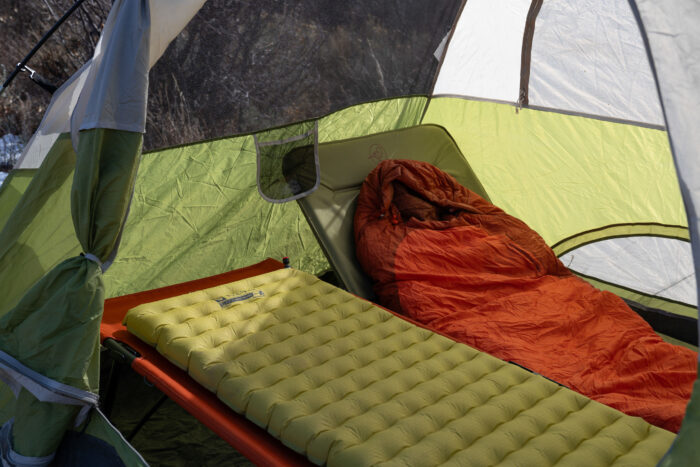
The question of camping cots versus sleeping pads depends on how you plan to travel. Consider how you plan to use your sleeping system and look at the options below.
Camping Cots vs. Sleeping Pads
Camping Cots
Camping cots elevate you off the ground, providing a softer night’s sleep. They also help to prevent the cold ground from chilling you as you catch those zzz’s.
They also provide a much larger sleeping space. This makes it less likely that you’ll roll off of it in the middle of the night. However, cots tend to be heavy, and they’re much bulkier than sleeping pads. This makes the majority of them less than ideal for portable use.
For people who only sleep a short distance from their cars, camping cots are a great choice. Since they won’t be hauling their cots far, the added weight and bulk aren’t as much of an issue.
In this case, comfort and ease of setup are generally the biggest concerns. Because camping cots are generally a closer approximation to the average bed, they are usually more comfortable than sleeping pads.
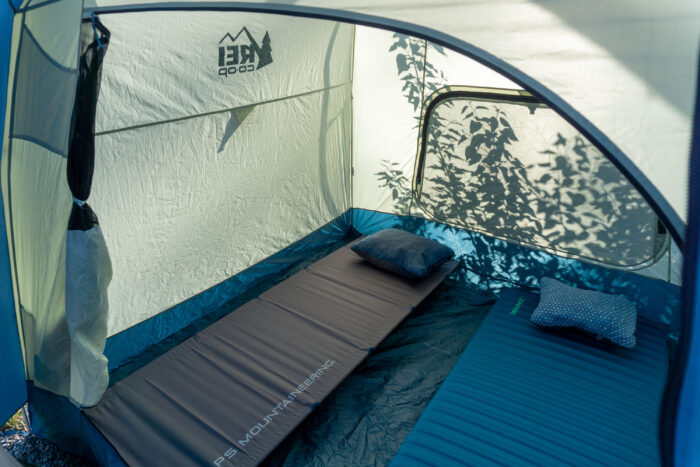
Sleeping Pads
Sleeping pads are much lighter and more compressible than cots. They are also generally softer than cots that don’t have integrated cushioning.
However, they do require you to sleep on the ground. This exposes you to the ground’s hardness and can let cold transfer from the ground into your sleeping bag.
Because backpackers have to carry all of their gear with them while they hike, weight and packed size are huge considerations. Many backpackers are willing to sacrifice the added comfort of a camping cot for lighter and more packable sleeping pads.
Many pads are also designed to add some of the amenities that cots provide. Insulated pads are built for cold-weather camping. The insulation within the pad absorbs some of the cold coming from the ground, preventing it from sapping heat from your sleeping bag.
Inflatable sleeping pads keep you off the ground and allow you to sleep on a cushion. These are softer than non-cushioned camping cots but are usually louder, as the lightweight material can make a crunching sound when you move on it. The most common description is that it’s like sleeping on a bag of chips.
Intrigued by sleeping pads? Check out GearJunkie’s full gear guide to learn more.

Camping Cots & Sleeping Pads
If luxury is the goal and weight isn’t an option, a camping cot plus a sleeping pad is the way to go. A camping cot paired with a foam sleeping pad provides the best of both worlds.
The cot will elevate you off the ground and give you a bigger space to sleep on, while the pad adds a good amount of softness. It’s similar to the function of the box springs and mattress of your bed at home.
If you want to combine a cot and a pad, check to see if the cot you’re looking at has an add-on pad. Some companies offer pads designed specifically to work with certain cots. This ensures that your pad will fit perfectly with your cot.
Some also have securing systems to attach the pad to the cot, which prevents it from moving around or sliding off while you sleep. For a cozy, all-in-one pad and cot option, check out the REI Co-op Wonderland Comfort Cot.
Ease of Setup
Any piece of gear is useless if you can’t set it up. The bed of a cot is generally composed of a material that is stretched tight over a frame that supports your body.
Pulling the material tight enough to support your weight requires a good amount of tension. Many people find it challenging to pull the last section of material over the frame, often requiring help from another person to pull with enough strength.
In our experience testing these cots, we’ve found that the smaller a cot packs down, the more complicated it is to set up. Generally, there are more pieces to put together, and there are more parts that have to be secured to create and maintain tension. Also, there are often snap-together or folding sections that can pinch your fingers if you’re not careful.

We’ve even had a tester make the mistake of trying to assemble a backpacking cot with his down sleeping bag lying on top of it. In the process, he snapped two pieces together over the sleeping bag material, causing a small tear in the bag.
The result was clouds of fine down puffing out and filling the air in the tent every time the bag moved, which led to a late-night search for duct tape (and a lot of swearing).
As is often the case when it comes to gear, there is always a tradeoff when it comes to how easy a camping cot is to set up. In general, the bigger and bulkier a cot is, the easier it is to set up. Smaller cots require more pieces to be broken down, but they weigh less and pack smaller. Larger cots are harder to carry around, but they usually require one or two steps to set up.
Some cots are engineered with state-of-the-art technologies that make them easier to assemble, especially for people needing more accessible designs and applications. These technologies include easy-lock mechanisms, adjustable springs, and pop-out assemblies.
Decide whether you prefer convenience or mobility, and choose the best cot for your needs. On this list, the REI Co-op Campwell Cot stands out for its simple camp chair-like setup.

Comfort
Again, there’s a tradeoff here. Larger camp cots with plenty of space and padding are universally more comfortable. However, they’re all but impossible to pack with you on a long hike or backpacking trip. Although smaller camp cots are a lot more mobile, they lack the frills and creature comforts of a larger cot. Below are a few ways you can consider your first or next camping cot in terms of comfort.
Some cots require you to pair your sleeping pad with them for optimal use, while others even have integrated pads attached to the cot itself. Adding a sleeping pad to your camping cot setup can help increase the warmth and comfort of your setup — especially if you are used to sleeping on your pad alone anyway.
Cots that don’t necessarily require an added sleeping pad tend to have the feel of lying in a hammock. The fabric should be stretchy enough that your body is comfortably supported, but not totally lacking in structure that you feel like you’re sinking in. We felt that the Mountain Summit Gear Horizon Cot performed well in this instance.

When considering the comfort of a camping cot, it’s also wise to think about its overall size. If you tend to toss and turn or sprawl out when sleeping, snagging a wider or double-size cot would probably be the best choice for you. King-size cots like the Teton Sports Outfitter XXL Camp Cot are crucial if you are planning on sharing your cot too.
Finally, it is easy to forget about the height from the ground when shopping around for a camping cot. Because you’re elevated off the ground, you won’t feel any protruding rocks, sticks, or lumps as you normally would sleeping on the tent floor.
The airflow under your cot even helps regulate body temperature by keeping you cool when it’s warm and protecting you from the frosty ground during the winter. When considering height off the ground, keep in mind that a shorter cot would be better suited for camping in a car, whereas a taller one can work best inside a taller dome-style tent.
If you’re going backpacking, comfort is secondary to ease of transport. Ideally, you’re going to want to go with a cot that is lightweight and packs down to a manageable size. If you’re camping next to your car, comfort is a priority, so consider the additional details below.
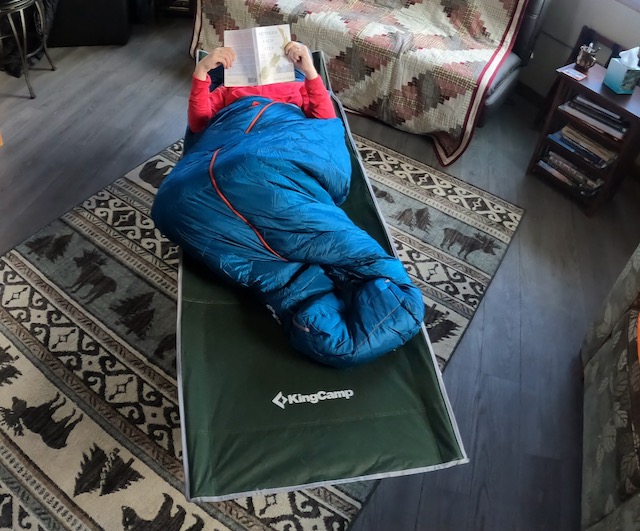
Warmth
It’s worth noting that sleeping on a camping cot is much like sleeping in a camping hammock. Without the insulation of the ground underneath, you’re more likely to become cold. It’s important to either bring an underquilt or pair your cot with an insulated sleeping pad.
Camping cots with integrated sleeping pads will typically be warmer than those without, as the extra cushioning helps you insulate your body temperature. These thicker pads, like the one found on the REI Co-op Wonderland Comfort Cot, paired with a warm sleeping pad, would keep you plenty cozy during some winter camping action, while the slimmer cushioning on the Mountain Summit Gear Horizon Cot would be perfect for summer camping without an additional sleeping pad.
Camping cots without attached sleeping pads are great for fully customizing your sleeping setup so you don’t get too frigid or toasty while trying to catch those Zs. What we love about the ALPS Mountaineering ReadyLite Cot is the option to insert a sleeping pad into the platform, making for a secure fit that will keep your body plenty insulated without slipping out from under you.
Whatever you decide when considering warmth in a camping cot, it’s always wise to bring extra sleeping bags, blankets, and insulation, especially if you’re winter car camping. You can always shed a few layers, but there’s not much you can do if you haven’t brought the correct provisions to stay cozy.
Sleep Area
Before buying a cot, you’ll want to first ensure that the cot is big enough for you to sleep on without resting on the frame. Most cots are long enough to fit people as tall as 6 feet and run just over 2 feet wide.
If you’re on the taller or wider side, many cots, such as the Klymit Cedar Mesa Cot, offer XL or XXL versions. These cots are generally longer and wider to accommodate larger people. During testing while elk hunting in the highlands of Colorado, tester Sean McCoy brought along the Cedar Mesa for 14 days straight, and the extra space garnered rave reviews from even the largest 6-foot, 200-pound hunters.
On this list, the Teton Sports Outfitter XXL Camp Cot offers a whopping 81 inches from head to toe. If you’re not sure whether a cot will fit you, look for the specifications online. The specs page will show the cot’s dimensions, so you’ll be able to see whether it’s a good fit for you.
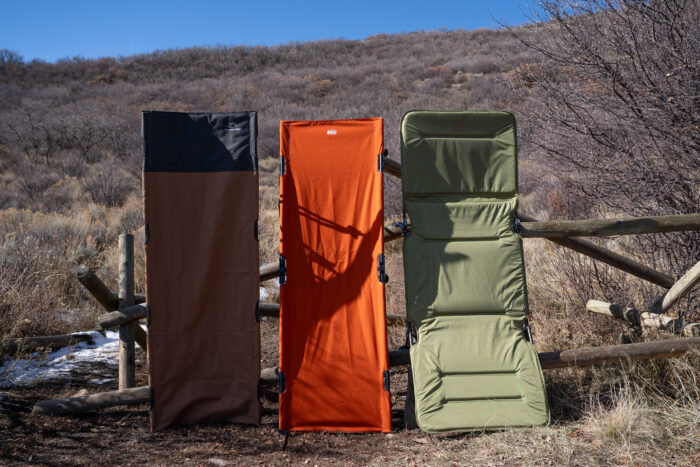
Cushioning
Most cots don’t have cushioning — the sleeping area is a piece of material like polyester fabric stretched tight to provide support. Many campers find these cots to be too firm, so they’ll add a sleeping pad of some kind to provide cushioning.
If you’d prefer to sleep on something that feels like your bed at home or want an extra bed for visiting folks, look for a cot that comes with cushioning, which will typically be additional foam added to the sleeping surface. Cots like the REI Co-op Wonderland Comfort Cot go this direction, and while the packed size is a bit larger, the trade-off is certainly in comfort.
You’re also liable to save some money going the all-in-one route, as well. A solid budget-friendly sleeping mattress like the REI Co-op Camp Dreamer XL is still $179, so paying the $199 for the Wonderland Comfort Cot makes a lot of sense in our books.
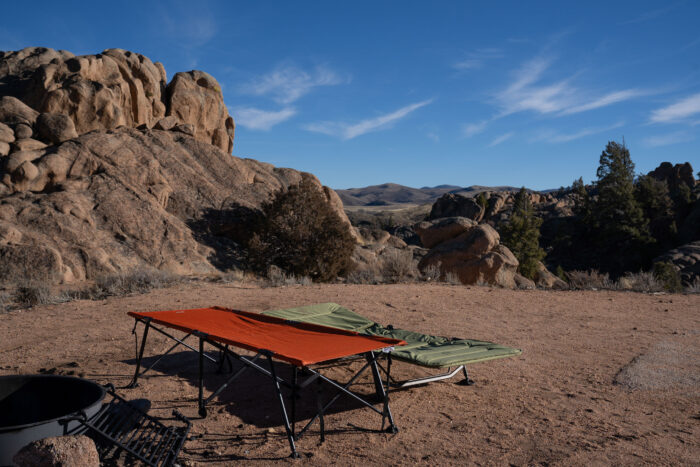
Weight & Packed Size
Most of the camping cots are designed for car camping, where pack size and weight are less of an issue. Camping cots tend to be on the larger side, weighing anywhere from 12 pounds on the lower end to around 30 pounds on the higher end.
Elements such as material, fabric, and design factor into the weight of a camping cot. Camping cot frames made with materials like steel will be heavier than those made of aluminum. Cot fabrics like canvas and polyester tend to add on weight compared to lighter nylon and mesh. Consider where you’ll be using your camping cot and how the overall design may affect your ability to carry it to your campsite or backpack with it through the wilderness.
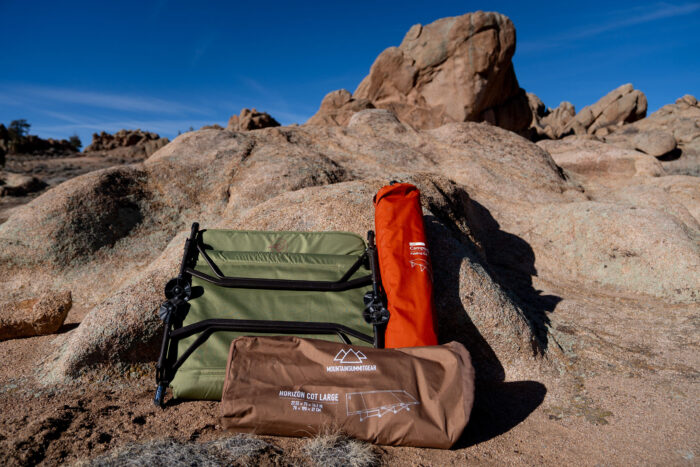
For hunting applications, packed size often is the make-or-break reason for whether a cot comes along to the yurt or not. Consider that you’ll need to be able to load up your cot onto whatever ATV you’ll be riding in on, and that most camping-style cots of the folding style are too large to accomplish this. Look to more packable cots like the Klymit Cedar Mesa Cot for the best hunting application, a cot that our elk-fanatic tester called “one of the best cots he’s ever slept on.”
Further still on the other end of the spectrum, some camping cots can pack as small as a camp chair or sleeping bag, making it worth it to throw in your backpack for a longer mileage excursion. The ultralight Helinox Lite Cot really soared on this front as it only weighs in at 2 pounds, 12 ounces, and fits superbly in our backpacks without taking up too much real estate.

Car Camping
If you plan on camping next to your car, the main thing to consider is how much space you have available in your mode of transportation, and whether you’ll have enough room for your cots and the rest of your gear. If you have ample space, comfort often becomes the first priority.
Choose the biggest, cushiest cot you can find, and don’t worry about the weight. Just make sure you have enough room in your car for it.
Our go-to choice for cushy car camping? The ultra-adaptable REI Co-op Trailgate Vehicle Sleeping Platform. And if you’re looking to shack up in the truck bed? Go for the set-and-forget ease of the FLATED Air-Deck.

Hike-In Camping
People who camp in spots that require a short hike from the car have additional considerations. If you have to hike to your campsite, make sure that your camping cot is light enough to carry to the site. Also, ensure that the cot isn’t too bulky to carry alongside the other necessary gear.
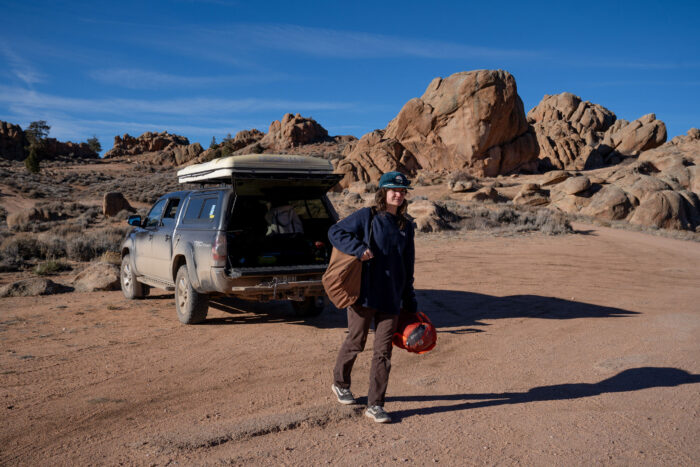
Look for a camping cot that is stowed in a bag, preferably one with handles or a shoulder strap. You’ll be thankful for details like this when it’s time to hike your gear from your car to the campsite.
The Klymit Cedar Mesa Cot is a superb choice if you’re looking for a camping cot that’s light enough to carry without getting winded. The included handled carrying case made setting up camp super easy and convenient without too many trips hauling gear from the car.
The Mountain Summit Gear Horizon Cot has an included sling bag that is roughly the same size as a champ chair. This made carrying it into the campsite a breeze while keeping our hands free for other gear, allowing for far fewer trips to the car.
Backpacking
In general, camping cots are not very compatible with backpacking. Cots are heavy and bulky — two words that backpackers avoid at all costs.
If backpacking is your primary style of camping, and you absolutely must sleep on a cot, consider one of the lightweight cots we profile above. The Helinox Lite Cot or Kelty Lowdown Cot are light enough to take into the backcountry, but are still comfortable enough to sleep on if you occasionally go car camping.

Hunting
Remote hunting outposts accessed by truck, ATV, or pack animal can be made all the more livable with the addition of a few cots to your wall tent. Tracking can take it out of you, and that’s even before the real work starts, so investing in a comfortable, yet packable, cot will make your hunt all the better.
If you’re going light and rucking into your basecamp, many of the backpacking-style cots will make the grade, but for vehicle-assisted hunts, moving up to the comfort of a more well-rounded cot is well worth the weight.
Packability is the name of the game when it comes to cots for hunting, and you’ll need to aim for a cot that can fit in your side-by-side, or in the panniers of your trusty steed. The Cabela’s Big Outdoorsman Cot is our go-to for damn-the-weight endeavors for truly large hunters, but the cot we end up reaching for most often for a hunt is the Klymit Cedar Mesa Cot, a platform that collapses down impressively for the extra-large sleeping space it provides.
Durability
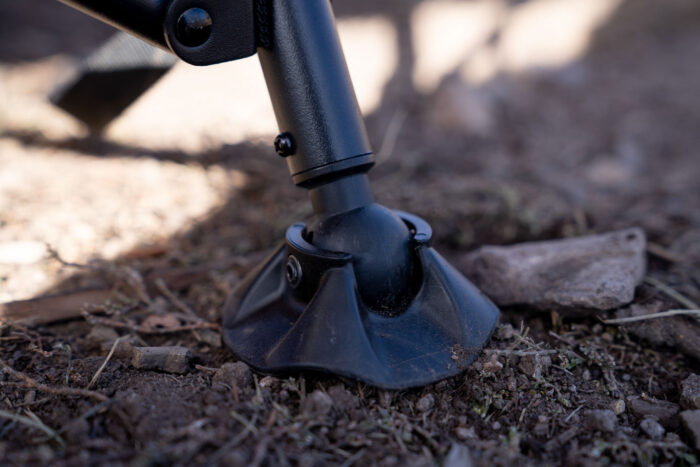
Durability varies widely with camping cots. We’ve found that there’s a proportional relationship between weight and durability with this type of gear. Generally, the heavier a cot is, the tougher it is.
Heavy car camping cots are made up of sturdy frames composed of steel or steel alloys. These heavier metals give the cot an exceptionally durable build. This makes them more resistant to drops, exhausted campers flopping down on them, roughhousing kids, and whatever other vigorous activities a bed might face.
Lighter cots have frames that are built with aluminum or some other lightweight material. The lighter weight is great for trekking it into the woods, but they’re often much more fragile.
Lightweight cot frames are sturdy enough to support campers’ weight while they sleep but must be treated with more respect. In our testing, we’ve found that these lighter-weight cots are best eased into when it’s time for bed.
When getting ready to snuggle into your lightweight cot, be sure to sit down in the middle first. Our lead tester made the hilarious mistake of sitting on the head end of one cot and quite literally somersaulted backward, albeit not very gracefully, landing with the cot on top of her.
If you’re camping next to your car and weight is no issue, you can opt for a heavier cot and rough it up a bit. On this list, the Coleman Trailhead II Cot is supremely durable, but it weighs a hefty 21 pounds. If a lighter, more packable cot like the Kelty Lowdown Cot better suits you, make sure that you’re more careful with it than you’d be with a 30-pound behemoth.

Accessories
If you want to elevate your camping experience and maximize the functionality of your cot, consider the accessories that come included or as add-ons for an extra price. These accessories can include side tables, storage compartments, pockets, sleeping pads, and other functional elements.
Designed with hanging side pockets for your phone and headlamp, the Mountain Summit Gear Horizon Cot and Klymit Cedar Mesa Cot are perfect for those searching for minimalistic accessories for just the necessities.
Really want to go all out with the accessories? Consider the customizable bunk bed style Disc-O-Bed. You can order this puppy with extra fabric cabinets, organizers, and sleeping pads that heighten camping to an extra level of luxury.
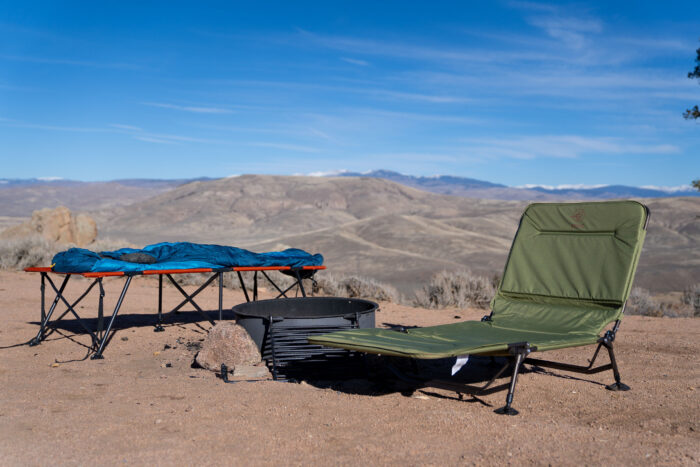
Price & Value
The camping cots that we profile here represent an accurate sampling of the prices you’ll see when shopping for a cot. They vary in price from $45 to $80 for simple, no-frills models, but cots can reach $300 and above at the higher end. When shopping for a camping cot, weigh the features you need against how much money you have to spend.
Budget
If you want a simple cot to keep you off the ground when you sleep next to your car, start with the lowest-end cot and think about what you’d like to add to it. A simple car camping cot consists of a folding frame with material stretched over it and should cost somewhere south of $100. They often will sport steel or aluminum frames, with plastic hinges being common on lower-end models.
On this list, the Mountain Summit Gear Horizon Cot is our Best Budget pick at just $100, and offers up a good bit without sacrificing strength. With this cot, you’ll mostly lose out on a little bit of sleeping space, and the camping chair-like support structure doesn’t allow for much storage beneath it.
The REI Co-op Campwell Cot will run you the same amount and will trade off some added storage space below for a less user-friendly design that isn’t the easiest to pick up and move.
Mid-Tier
Want added cushioning or organization options? Be prepared to spend a little bit more on an upgraded option, somewhere in the range of $150-300. These cots also tend to add additional sleeping space and are often 30″ or wider — making them more comfy for spreading out on. Specialty cots like the Teton Sports Outfitter XXL ($180) and Helinox Lite Cot ($300) also show up in this price range and are made for those looking for a huge sleeping surface, or backpack-able weight and size.
The REI Co-op Wonderland Comfort Cot ($199) has been our top pick for three years running, and it lands smack-dab in the middle of the price range for cots. For the money, it offers up everything we think a cot sleeper is looking for.
Premium
Looking for a cot that is light and easy to carry into a walk-in campsite? Or a specialty-use option to add a sleeping platform to your vehicle? These options will cost a little bit more because of the lightweight materials and design that go into the construction. These generally cost north of $300 and above with add-ons like rainflies or integrated tents.
The REI Co-op Trailgate Vehicle Sleeping Platform ($350-450) is perfect for adding a level surface to the back of your daily driver, and for those who camp out of their pickups, there’s the FLATED Air-Deck ($549-699).

Frequently Asked Questions
Comfortable is a subjective term. It can depend on many things, such as how firm or soft you prefer your sleeping space, as well as whether you sleep on your back or side.
The most common complaint about camping outside is how firm sleeping systems are, so a cot with some cushioning is ideal. Our choice for the most comfortable is the Coleman Airbed Twin Cot for its soft cushioning, contouring, and adjustable incline settings, as well as the REI Co-op Wonderland Comfort Cot, for a smaller-packing option.
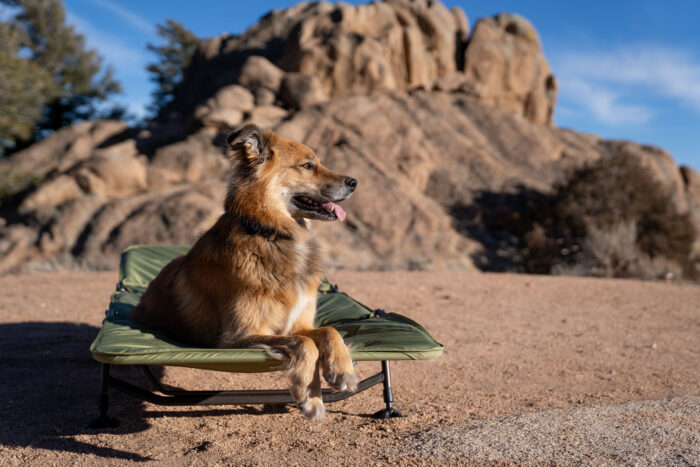
Because they closely mimic the feel of sleeping in your bed at home, cots are an extremely comfortable option for car camping. Once assembled, most camping cots can easily be thrown in your tent, car, or under the stars. However, as we’ve stated above, traditional camping cots are too heavy and bulky for backpacking.
There are a few ultralight “backpacking cots,” but many backpackers choose sleeping pads because they are lighter and more packable.
A good full-size air mattress is the closest you can get to sleeping on your bed at home. However, they are bulky, and they usually require an external power source to fully inflate. They are also difficult to clean after a camping trip.
Camping cots are often less comfortable than an air mattress but are more durable, easier to transport, and easier to set up. A high-quality cushioned camping cot can come close to, or even surpass, the comfort of an air mattress, plus they take much less time to set up. The cushioned design of the REI Co-op Wonderland Comfort Cot stood out for us.
Many of the camping cots that we have tested are generally around 25 inches in width. This is wide enough for most campers. If you need a wider cot, many cots offer larger versions for bigger sleepers. These can range from 30 inches to over 40 inches in width. The 40-inch Cabela’s Big Outdoorsman Cot is a perfect example.
If your camping trip had some unexpected moisture or your mud-covered pup hopped up on your camping cot for some snuggles, you’ll probably want to take careful measures to give it a good cleanup once home.
Before attempting to wash your camping cot, be sure to check the manufacturer’s instructions first as there could be some guidelines or restrictions pertaining to your cot’s materials. If you’ve only got some small stains or dirt on your cot, we recommend spot cleaning prior to doing a full-on wash down. This can be accomplished by putting some mild dish soap on a cloth and lightly dabbing the material before applying some water.
If spot cleaning won’t quite do the job, check to see if your cot’s fabric materials are machine or hand washable. Be sure to avoid using any harsh detergents, bleach, or high heat. When drying be sure to hang dry your cot out of any direct sunlight that could potentially cause the fabric to fade or damage the finishes.
For cleaning the metal legs and hinges, we recommend wiping them down with a damp cloth and promptly drying them with a towel to avoid any rusting or long-term damage to the mechanisms.
Keeping your camping cot clean and stored in a dry place will ensure its longevity for many camping trips to come.
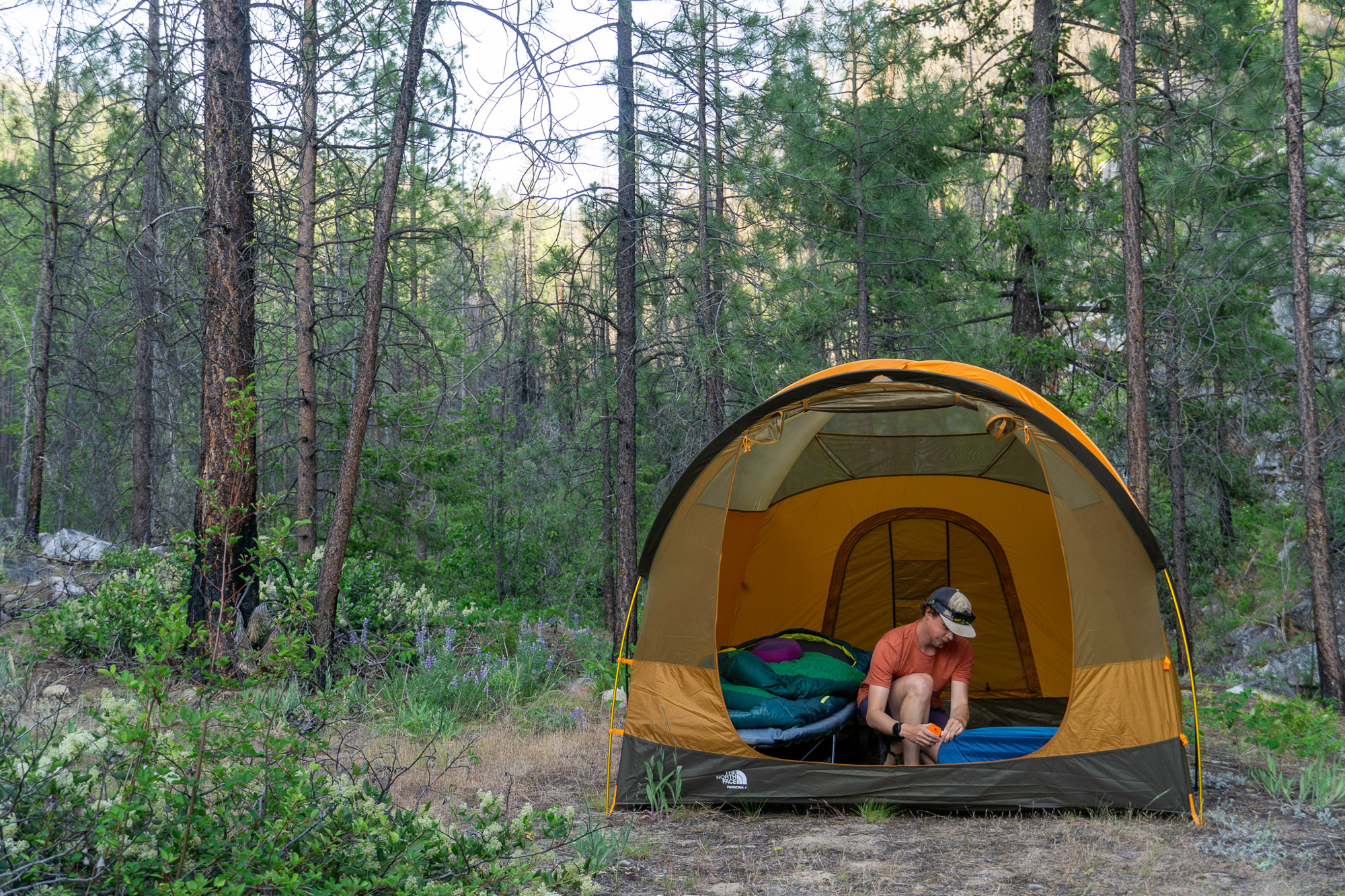
The Best Camping Tents of 2026
We make finding the right camping tent easier for you by bringing you the best camping tents of 2025. Check out our top picks from REI Co-op, Kelty, NEMO, and more.

The Best Camping Mattresses of 2026
From packable sleeping pads to ultracomfortable air beds, we tested and found the best camping mattresses and sleeping pads to fit every adventure and budget.
